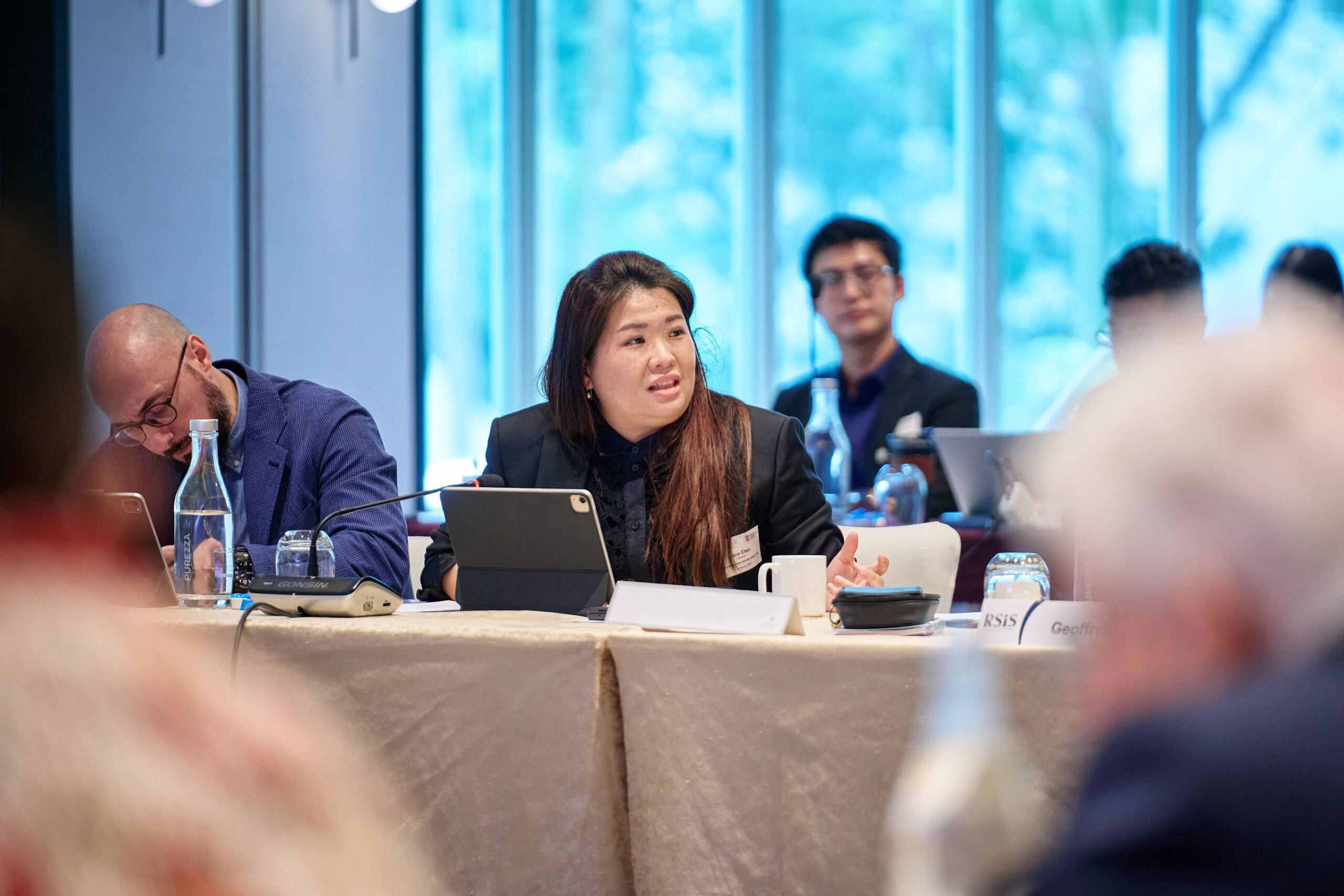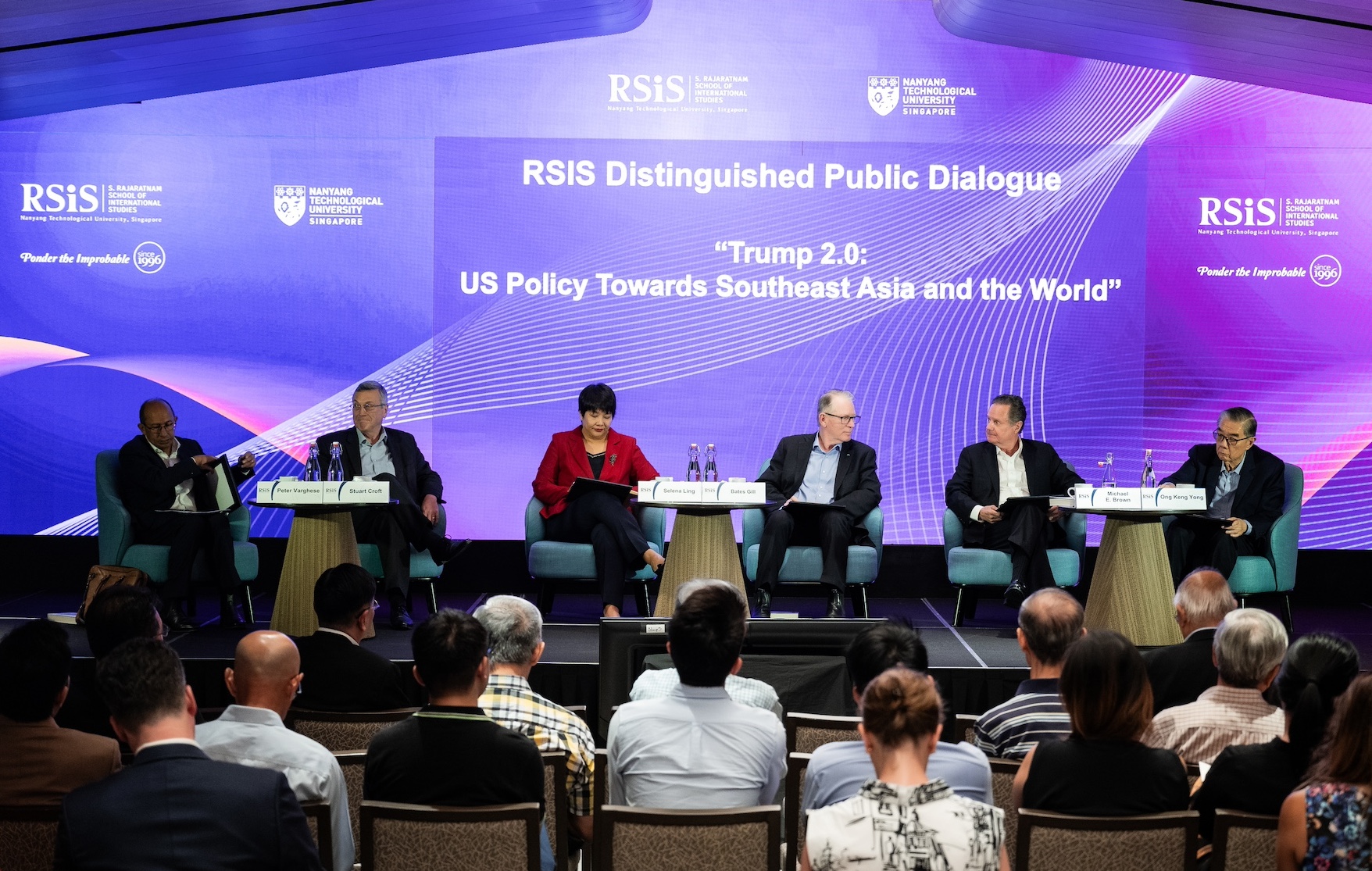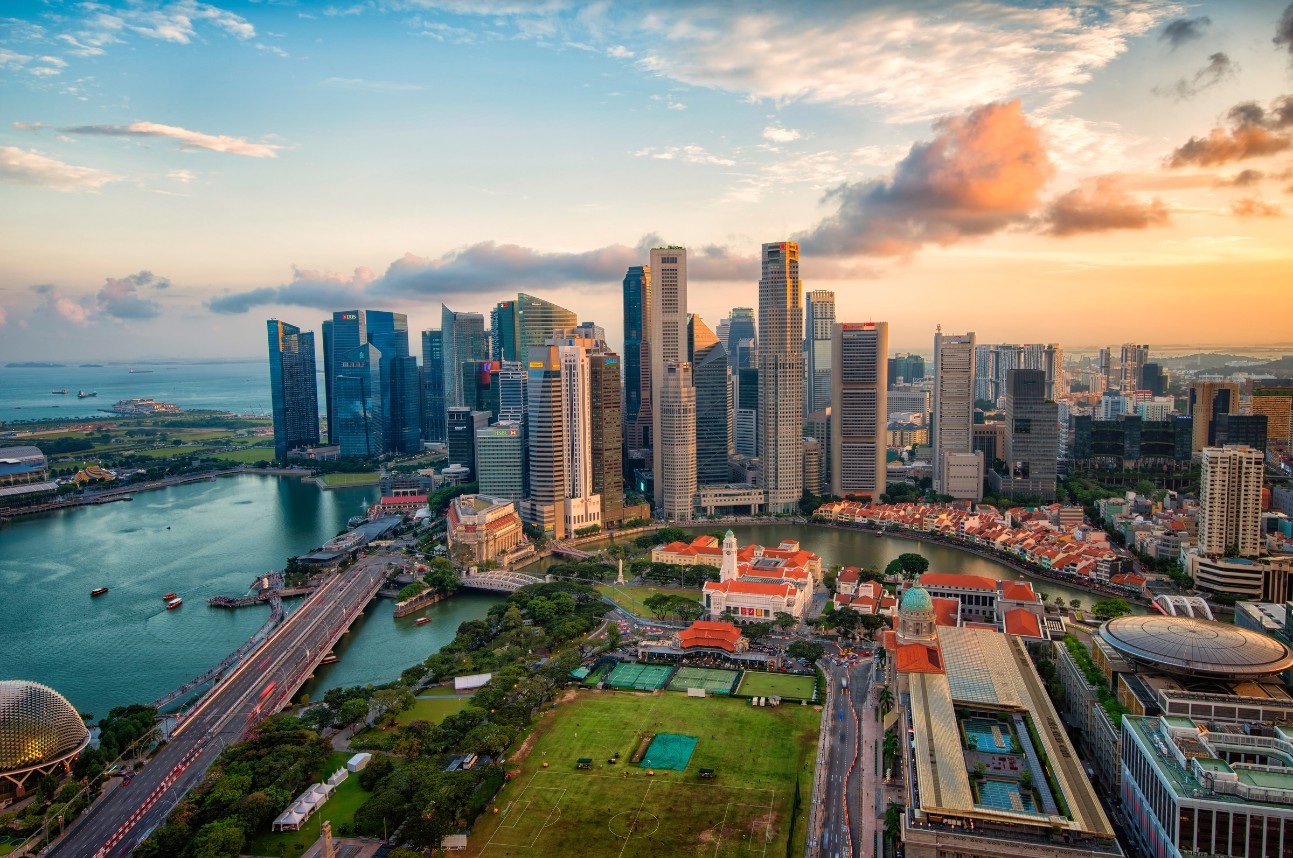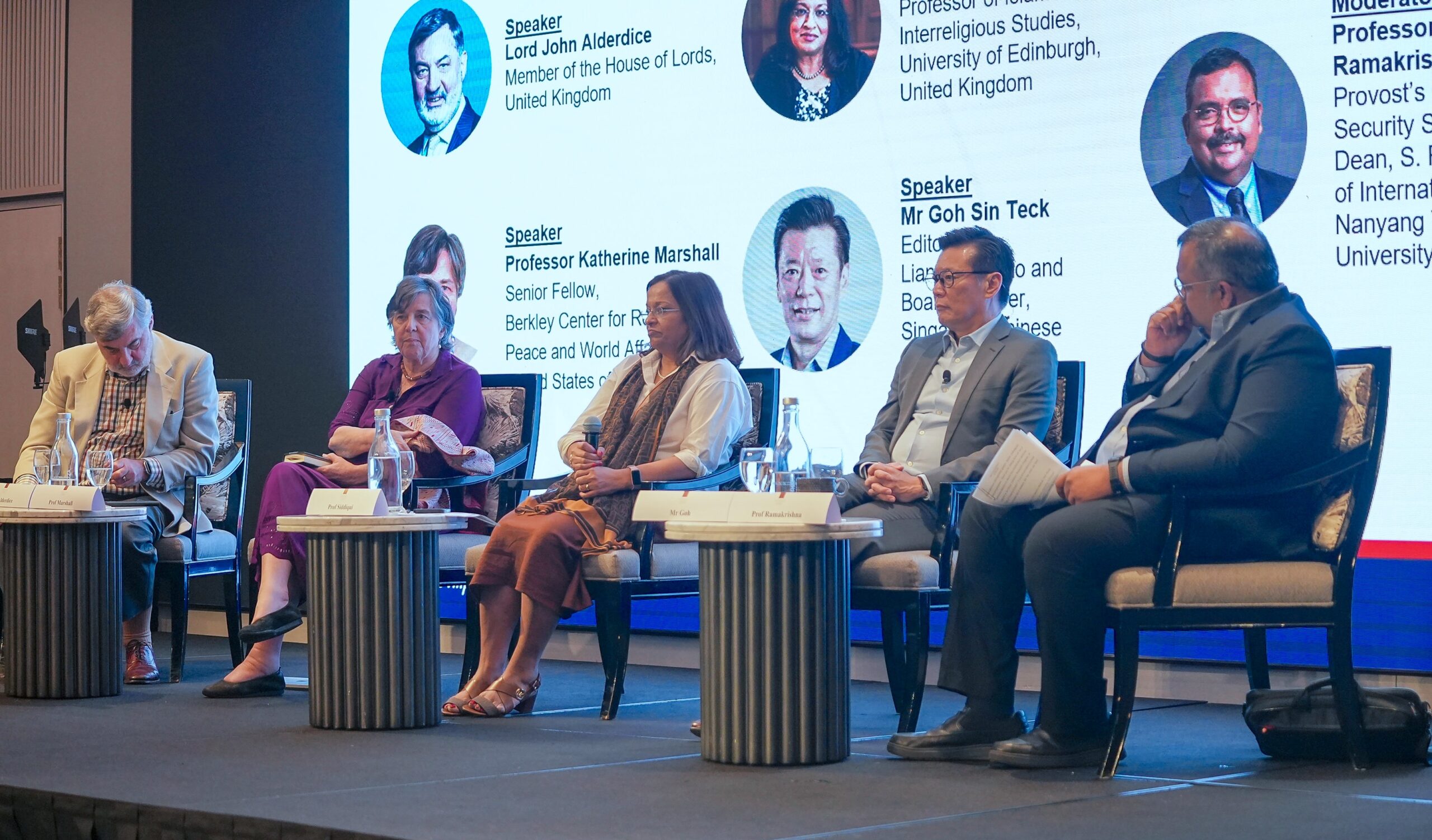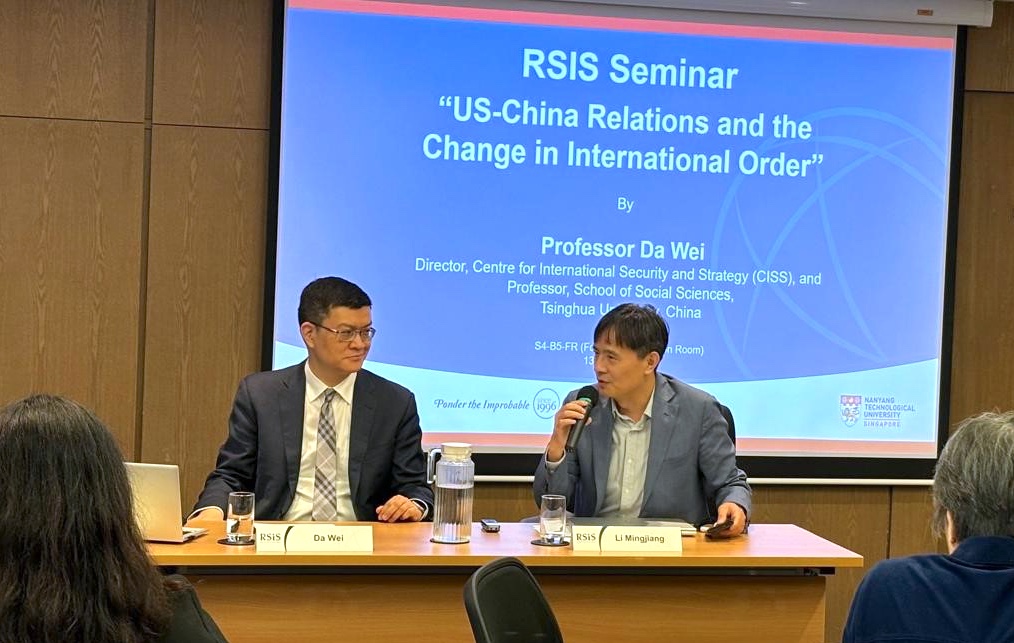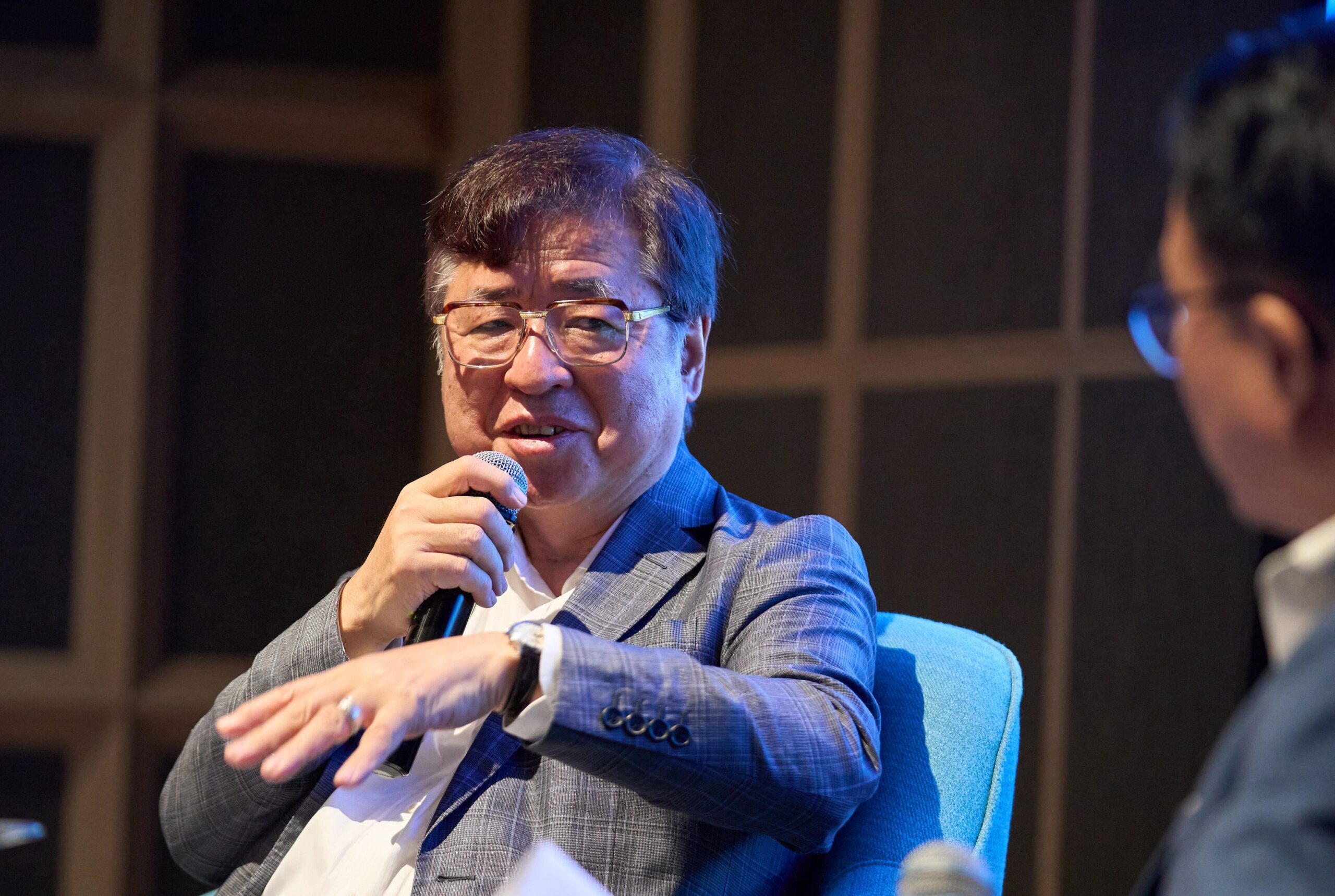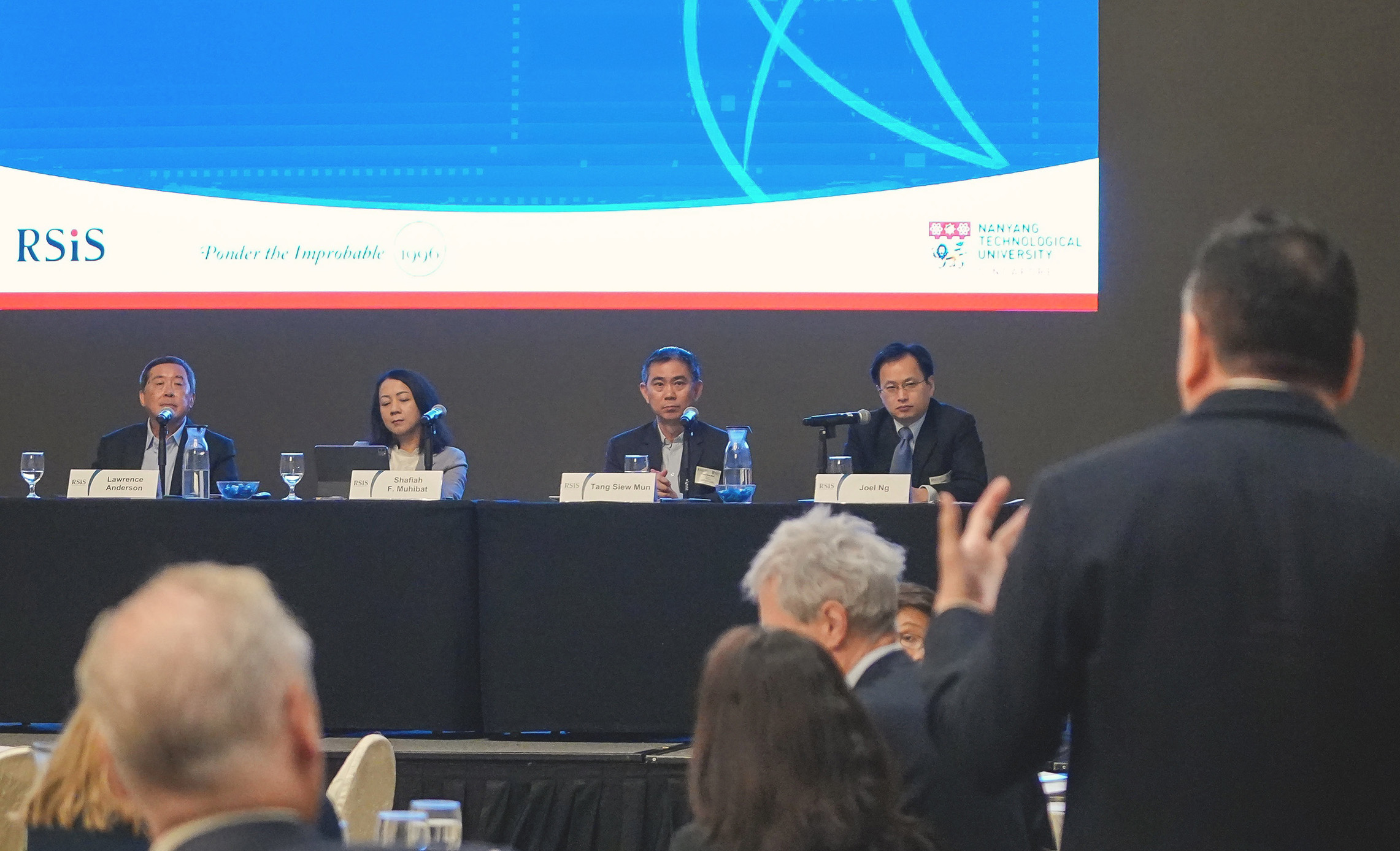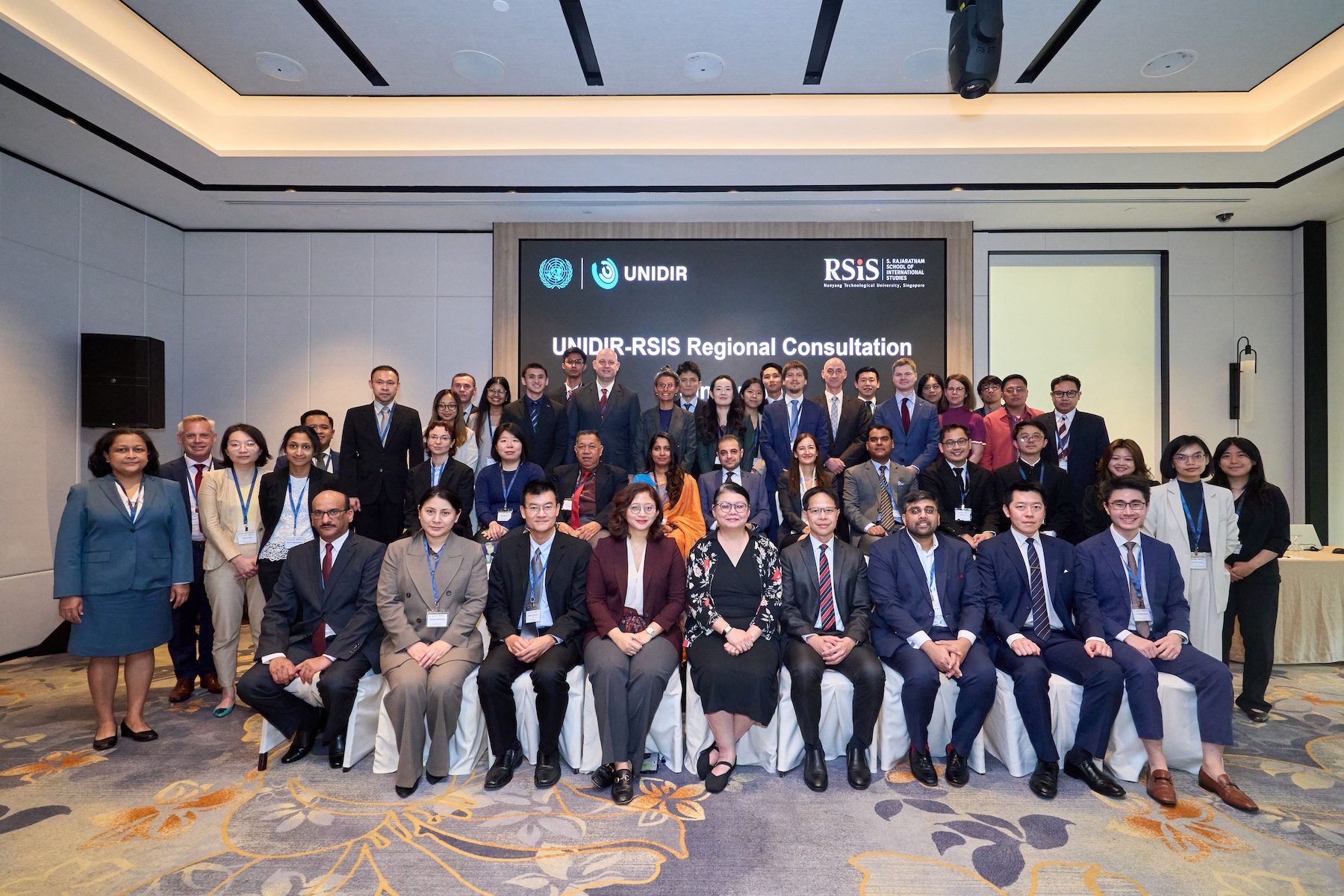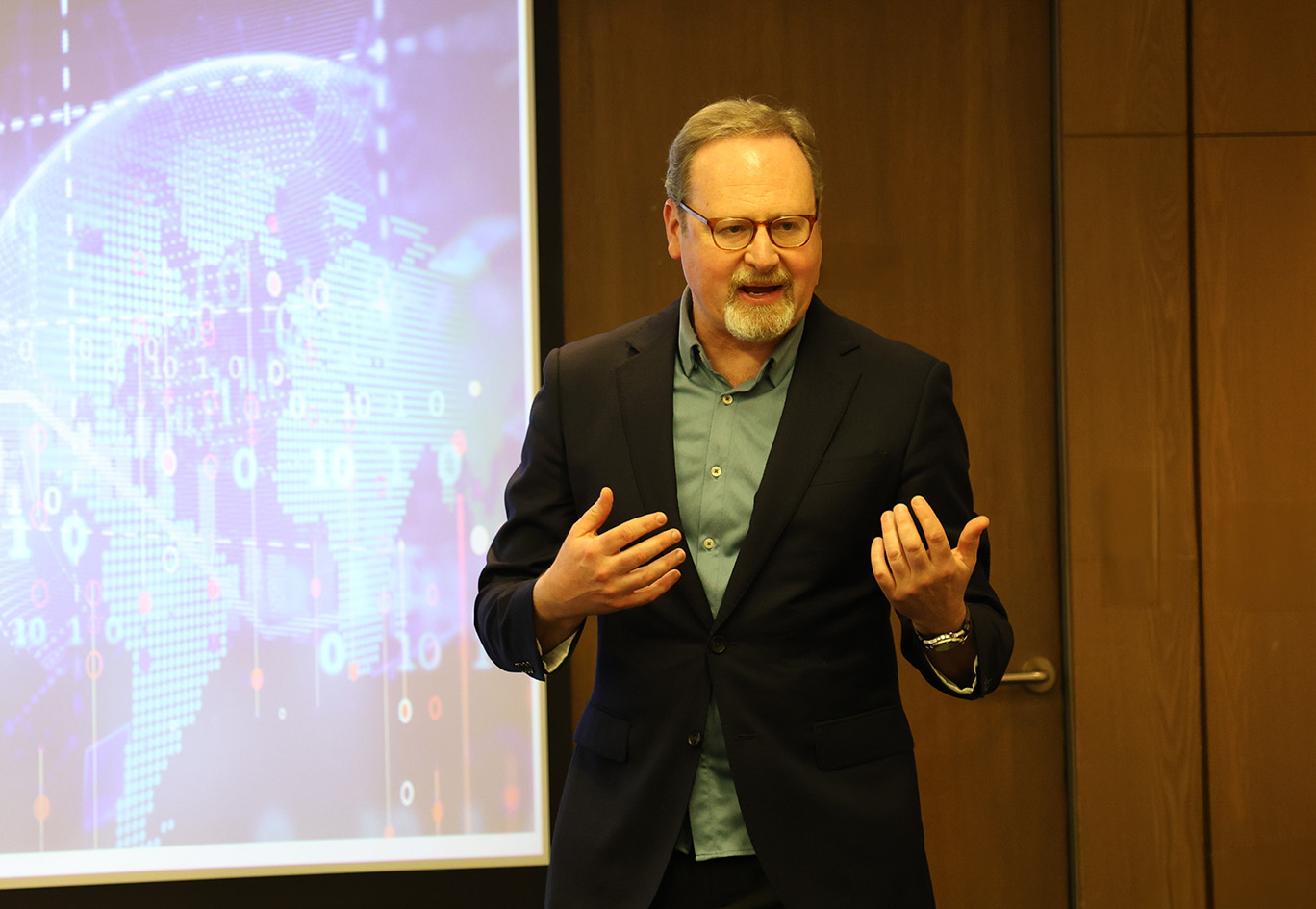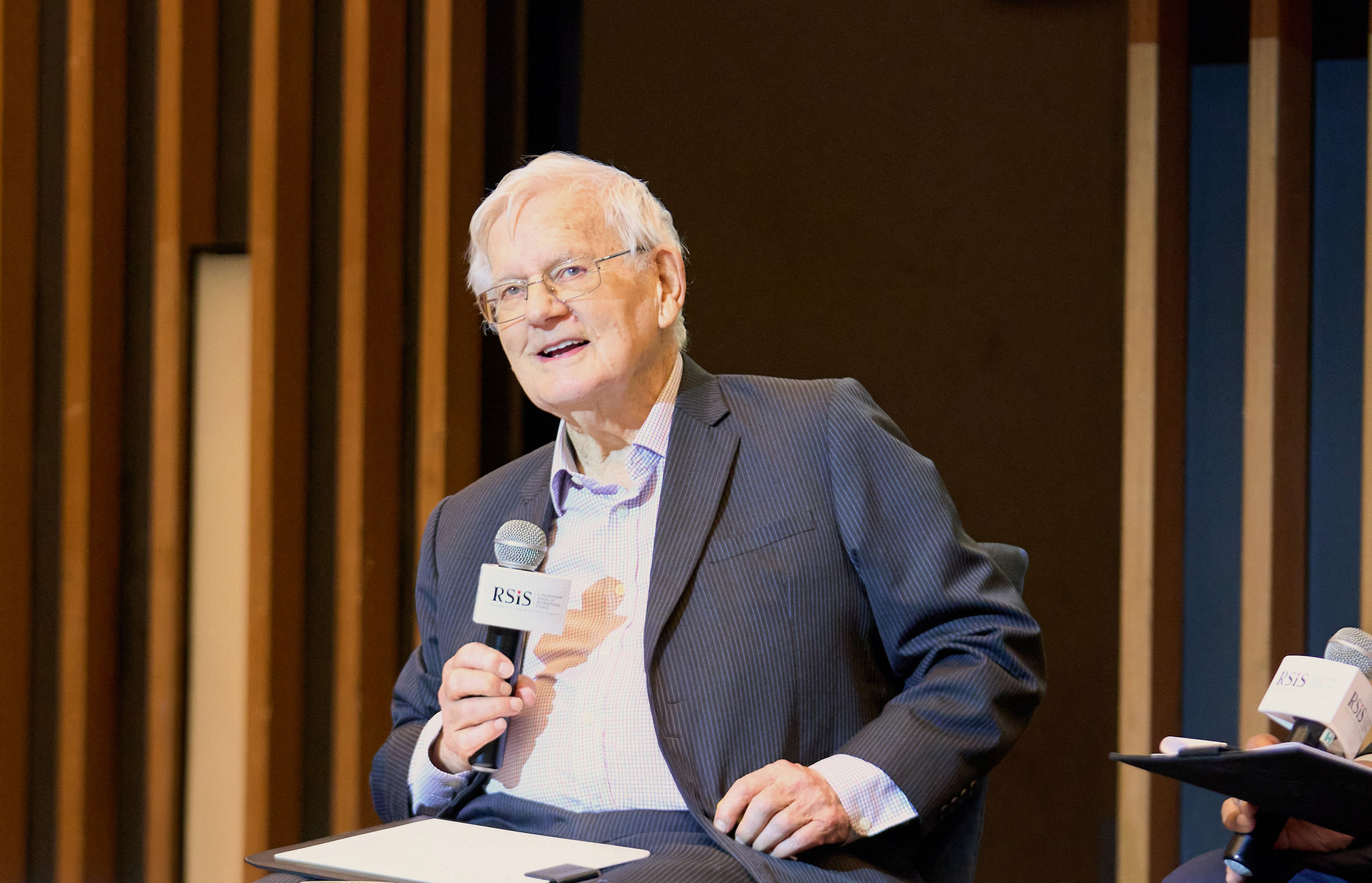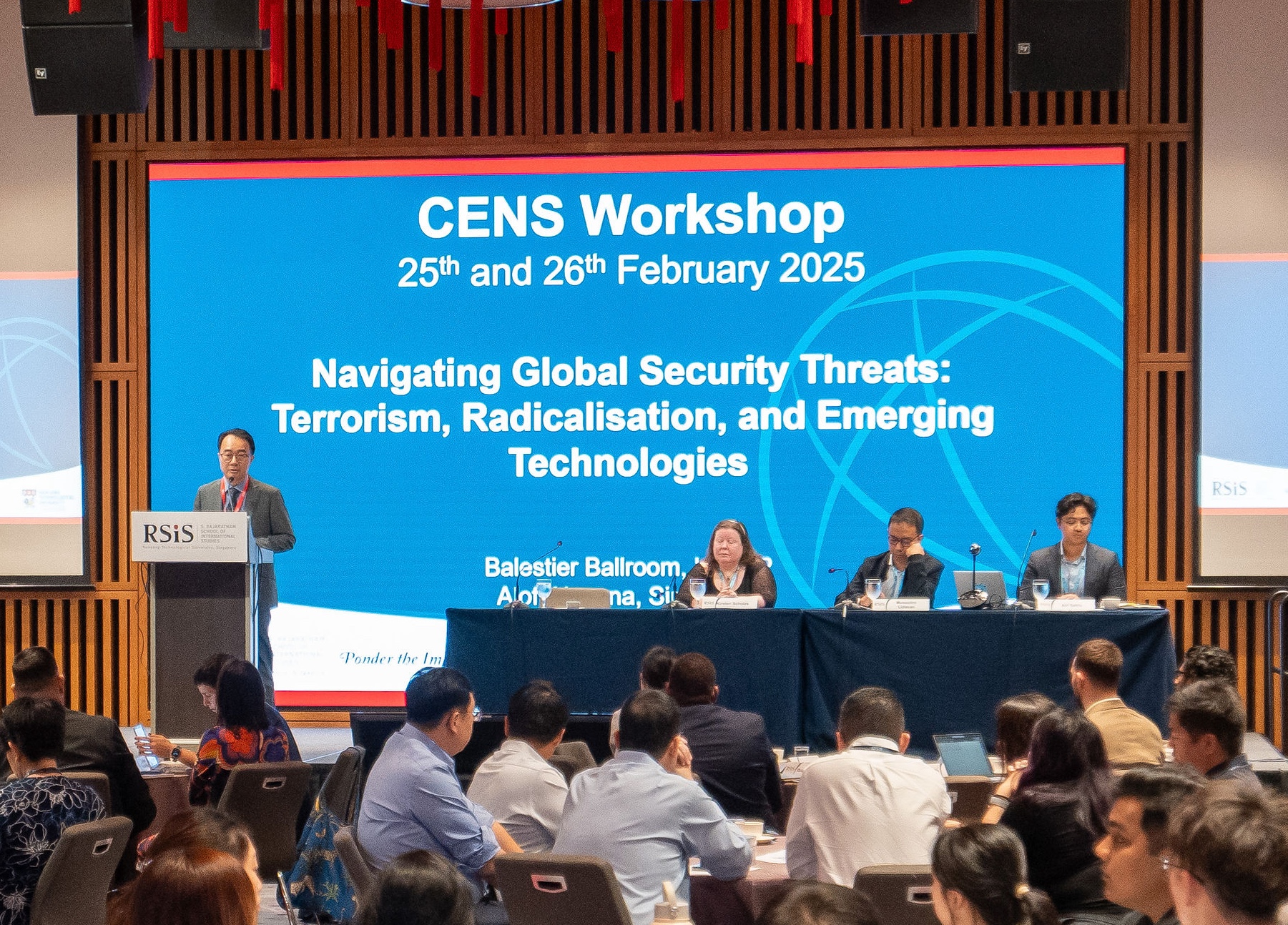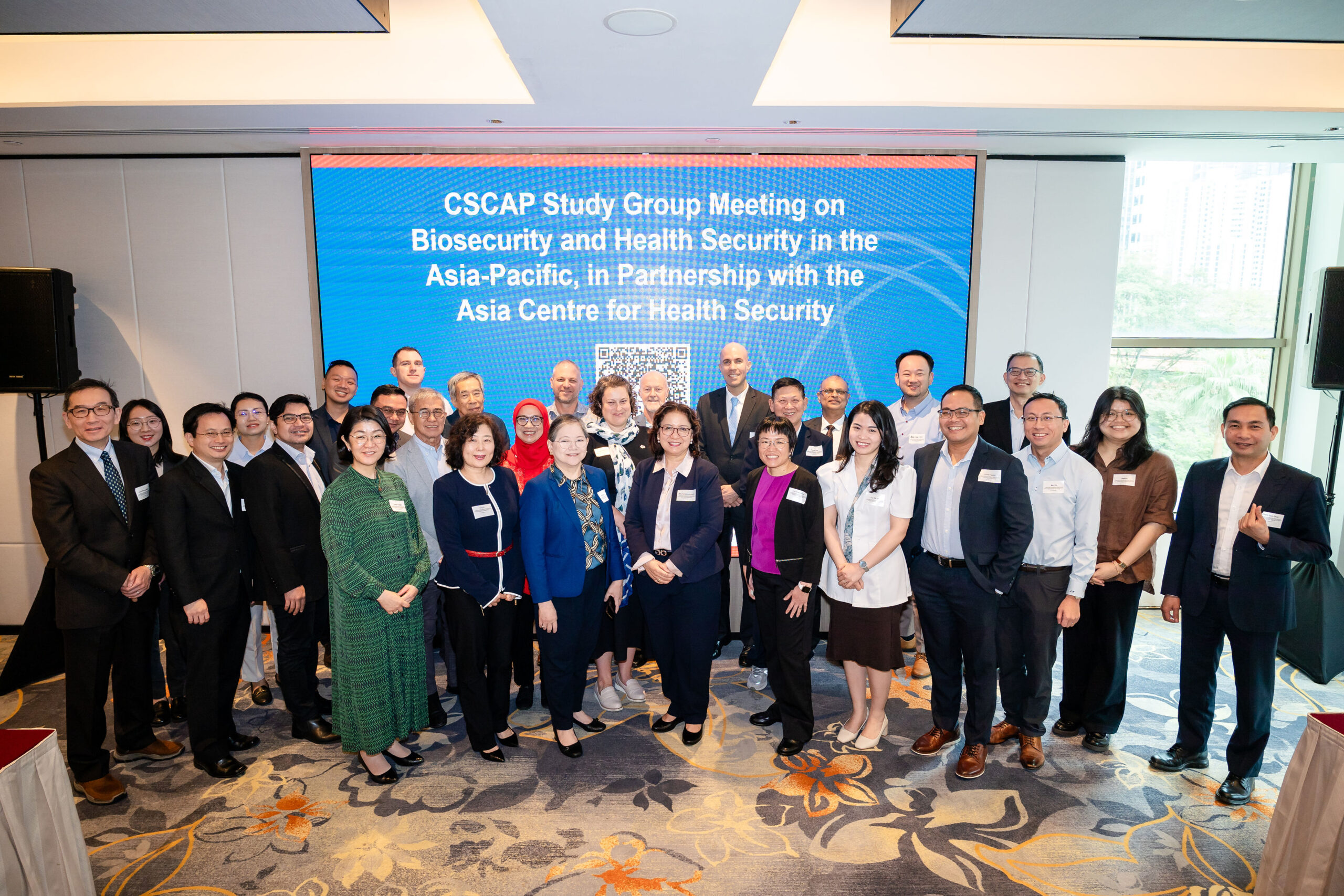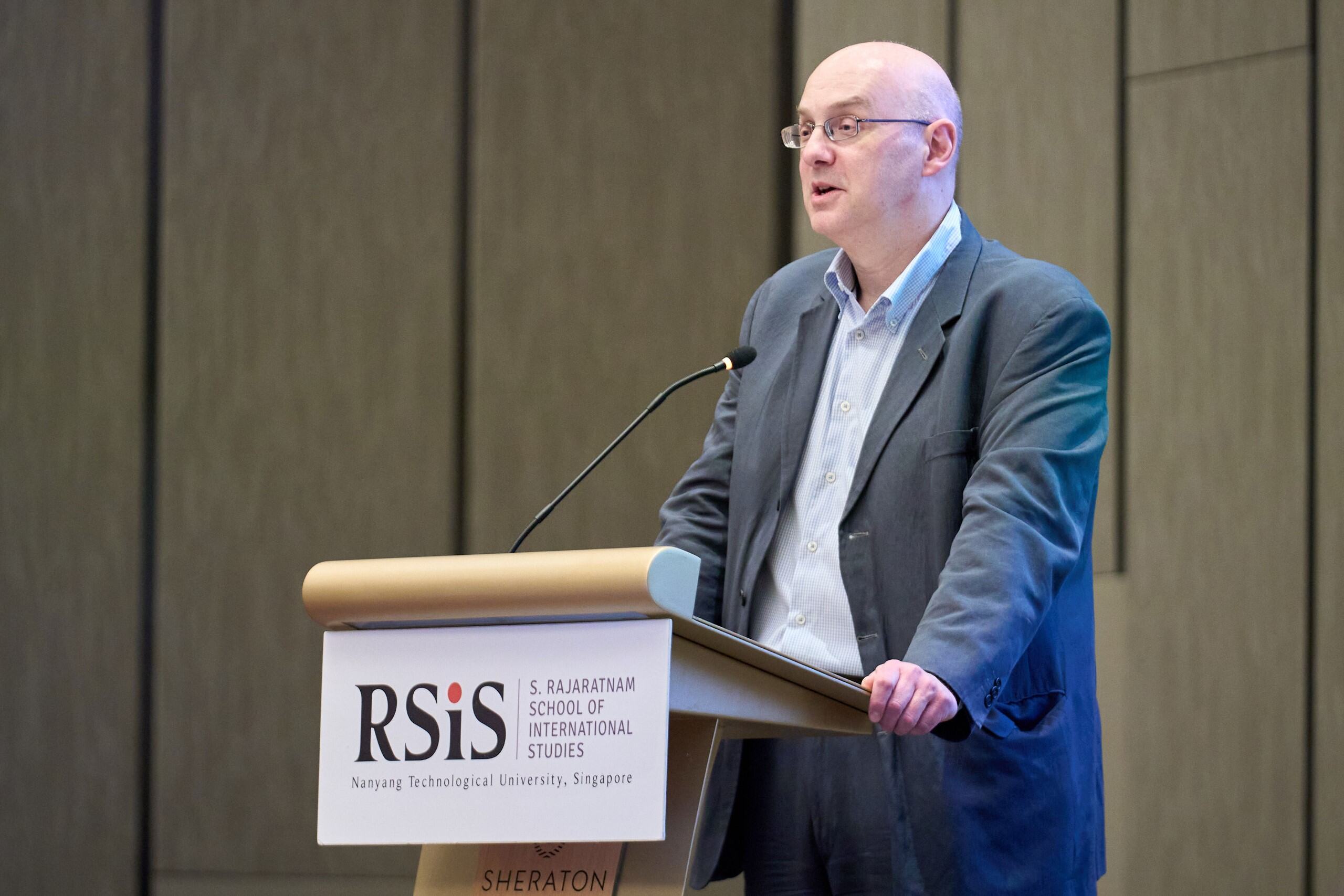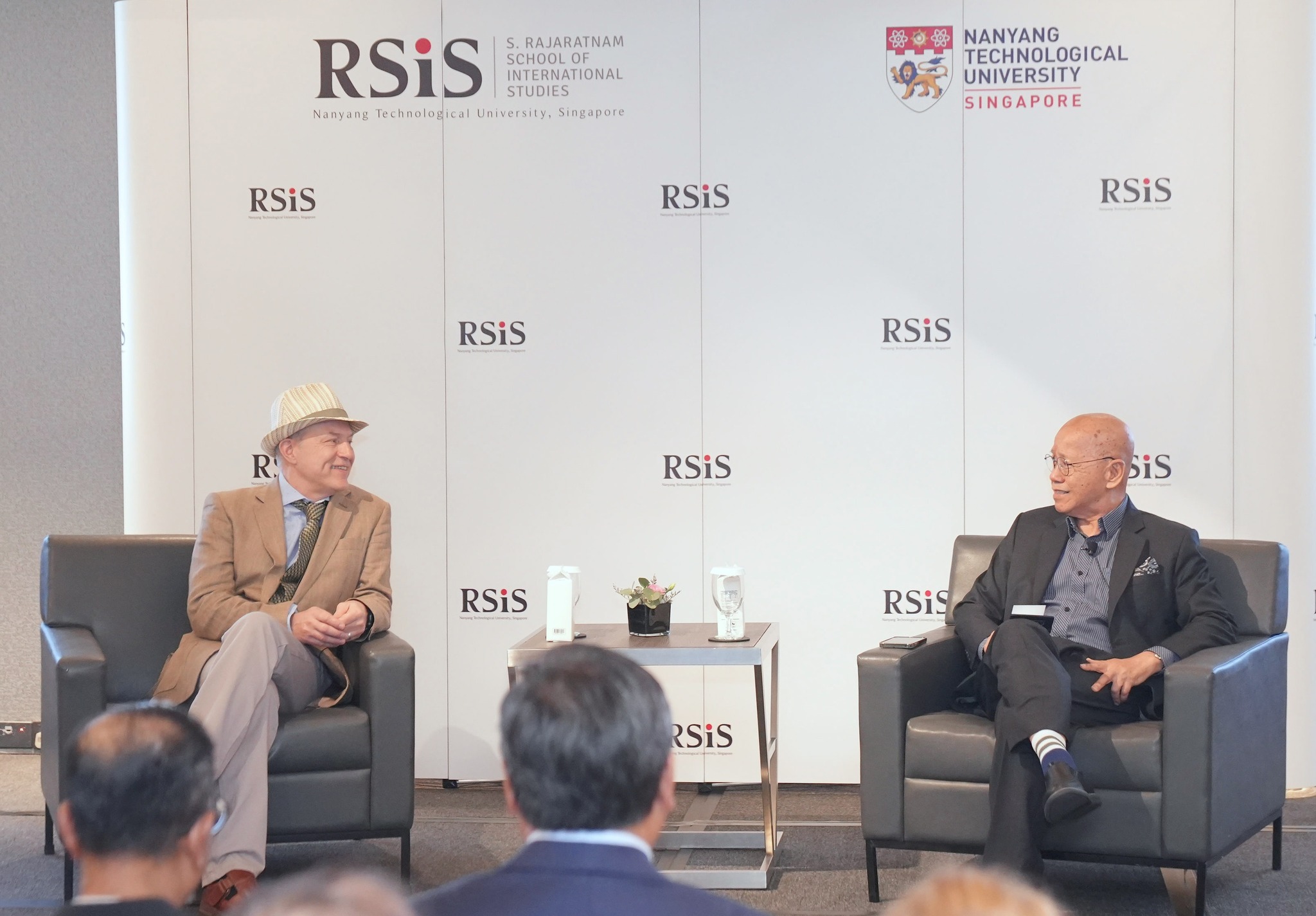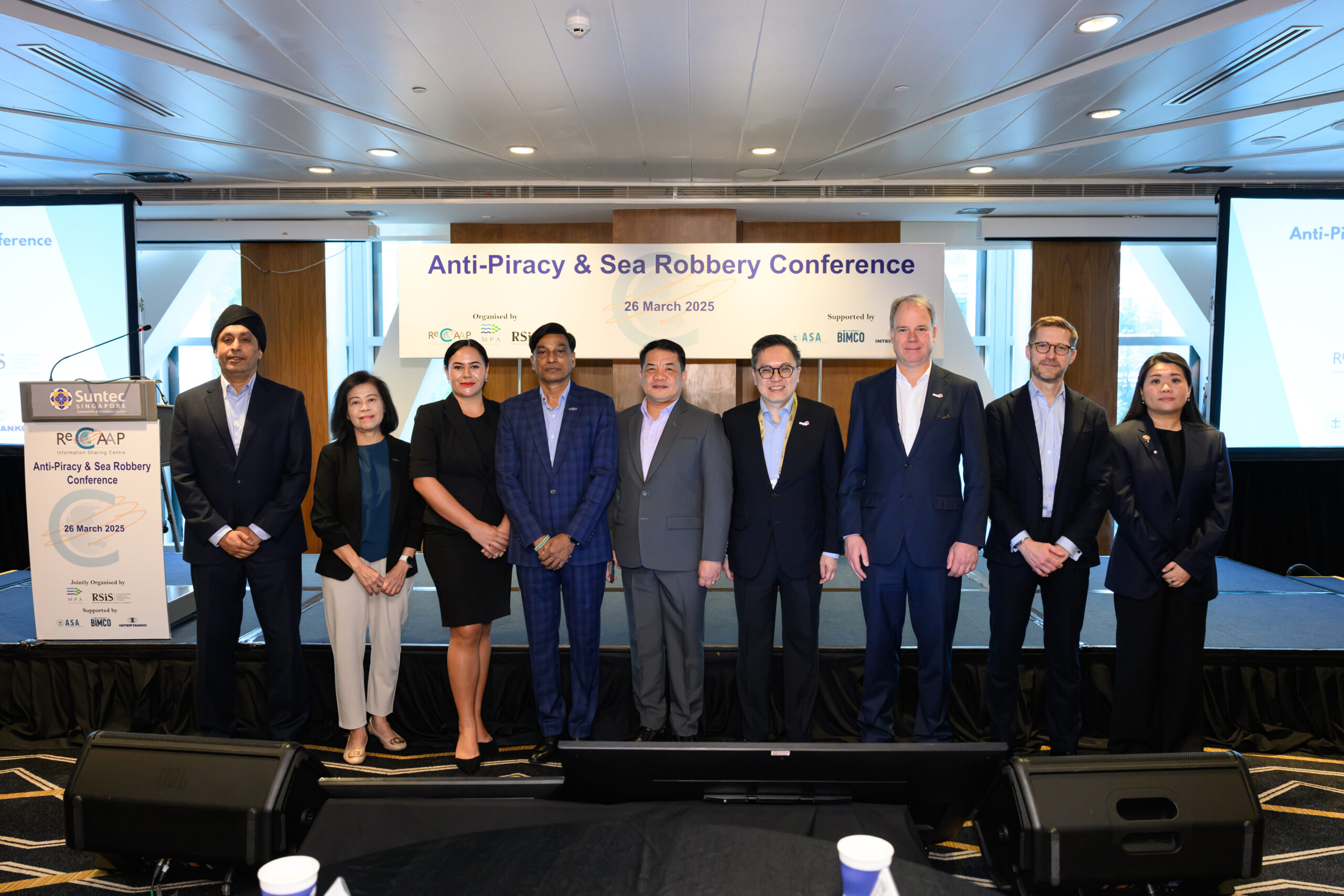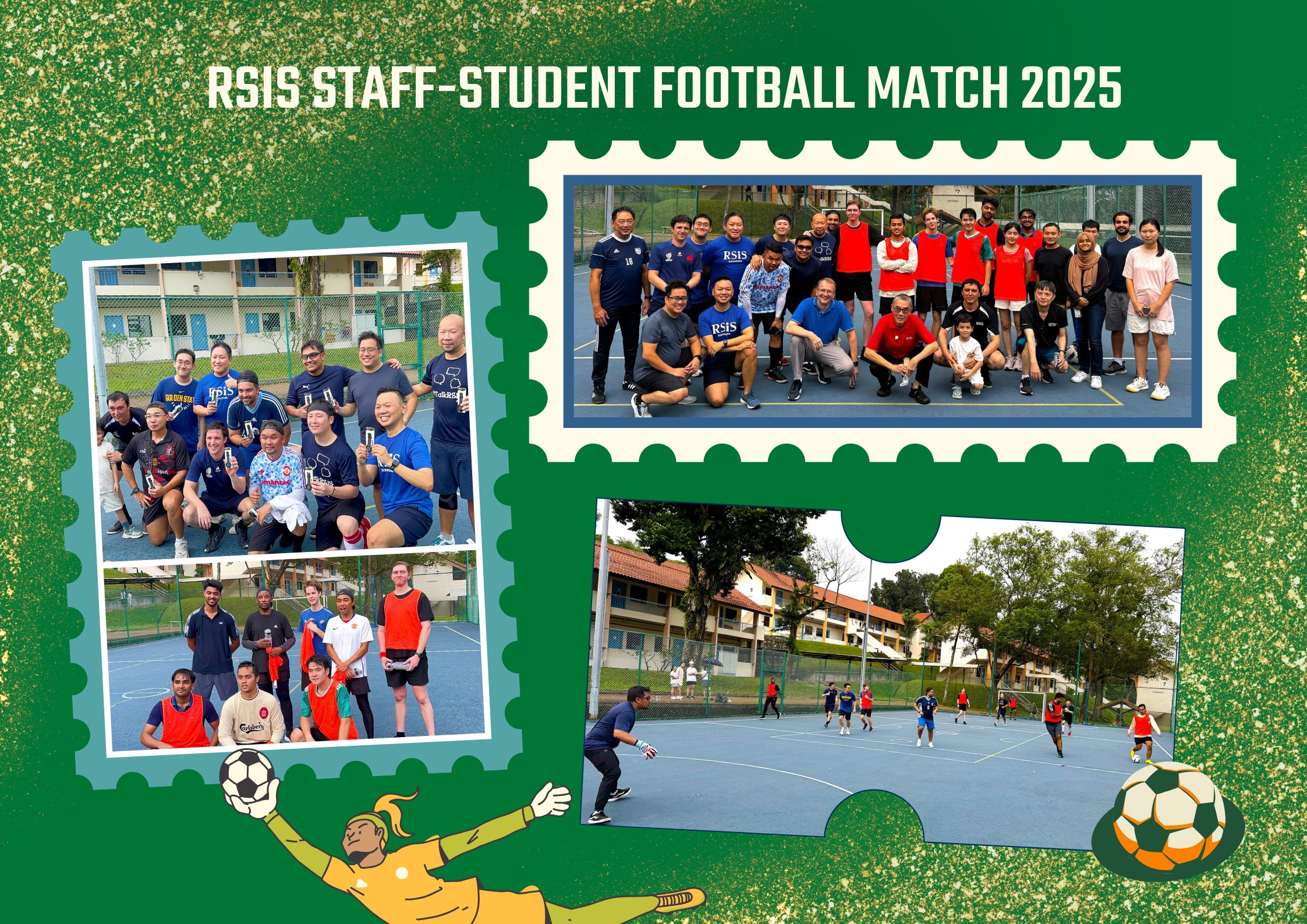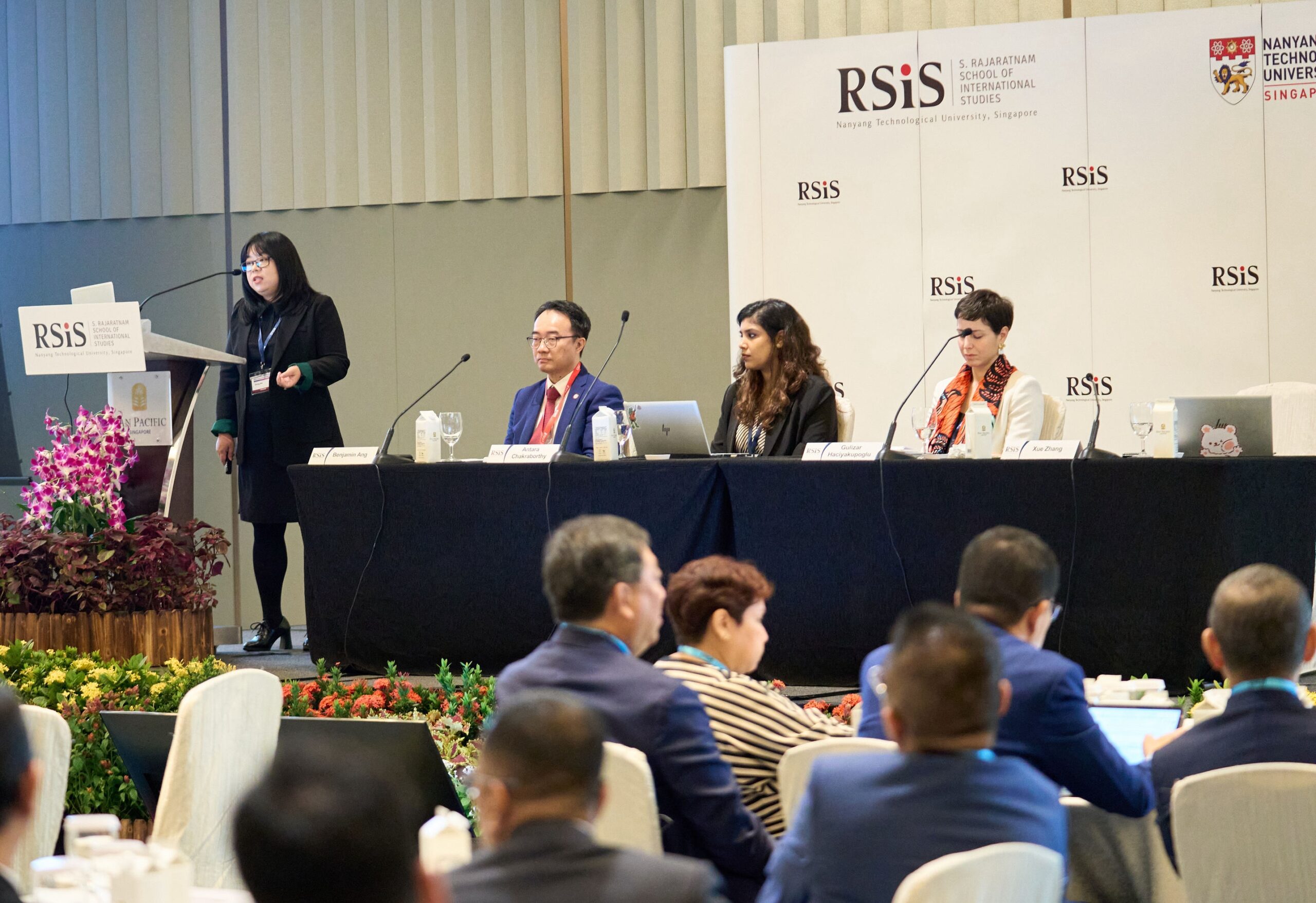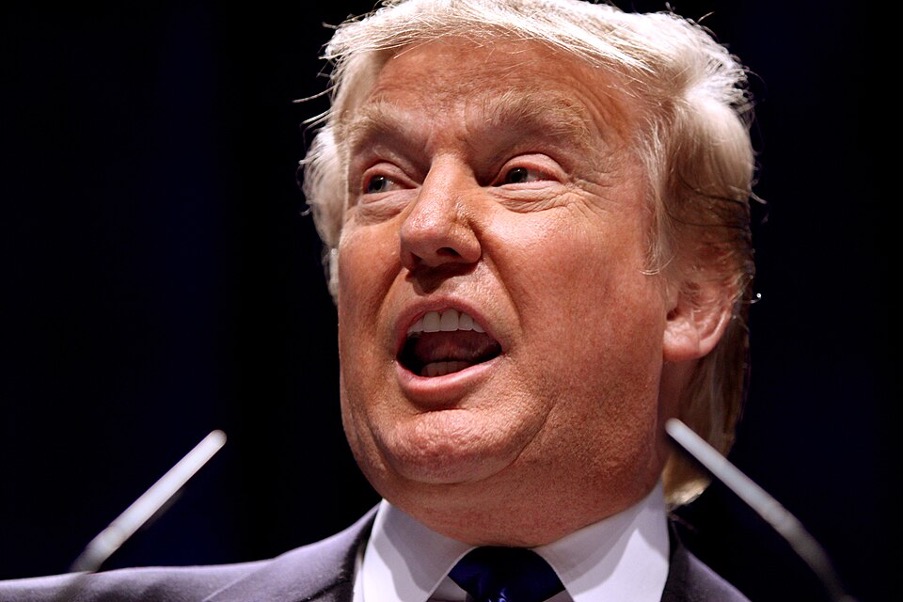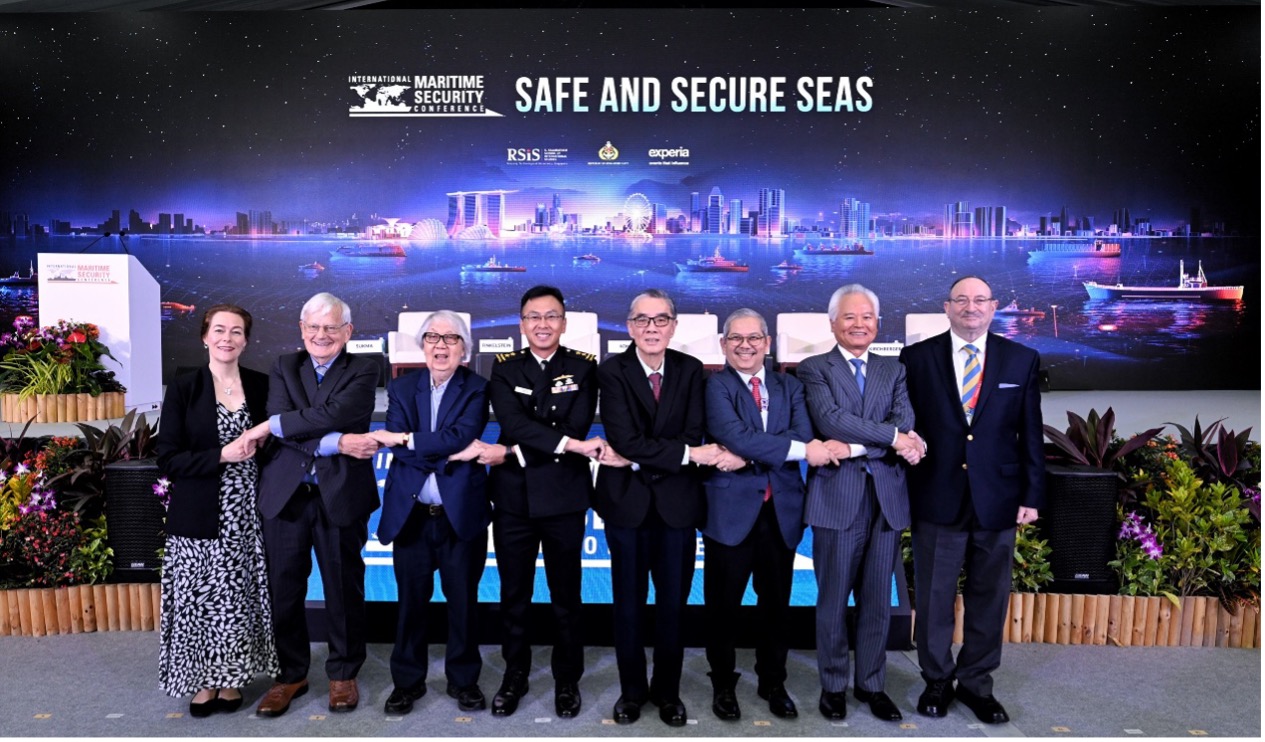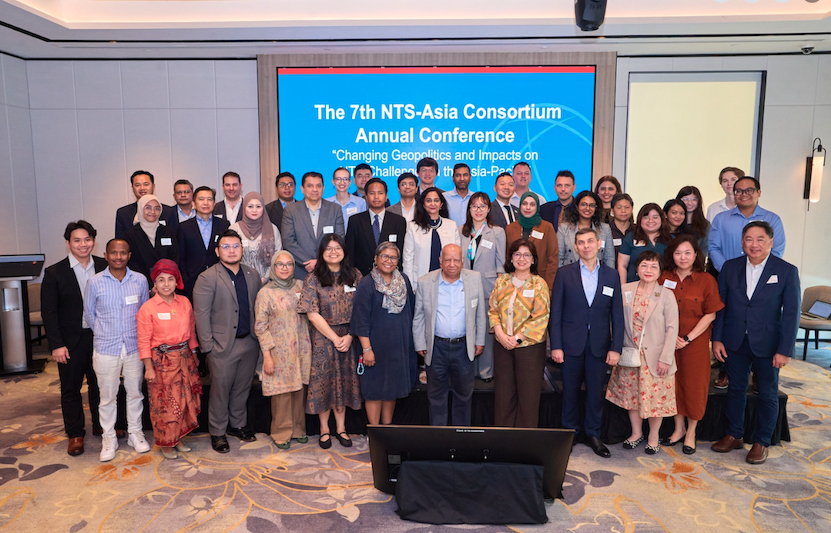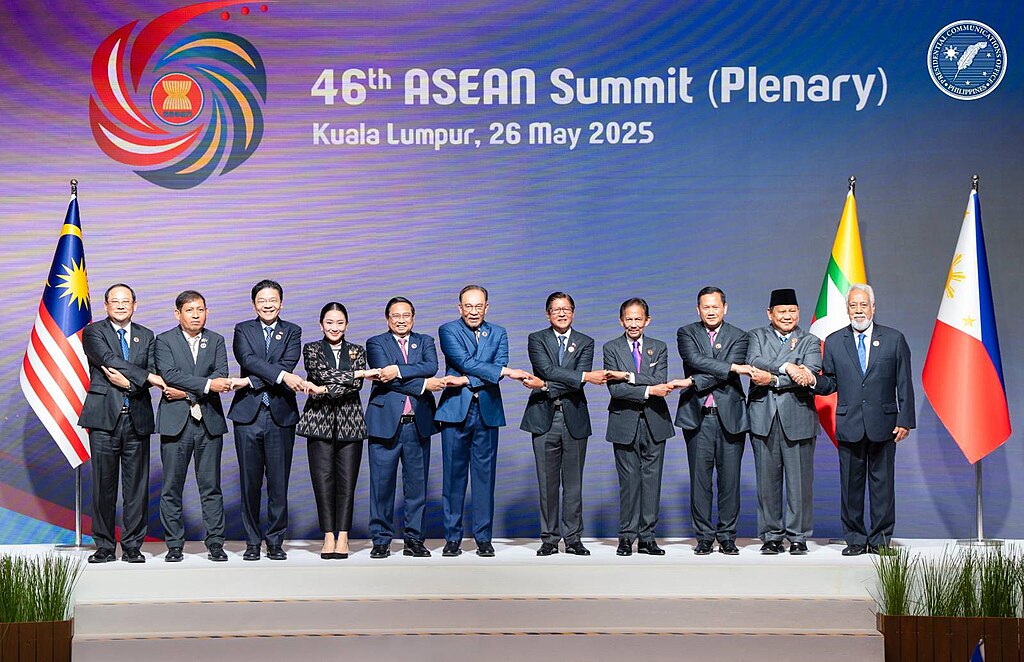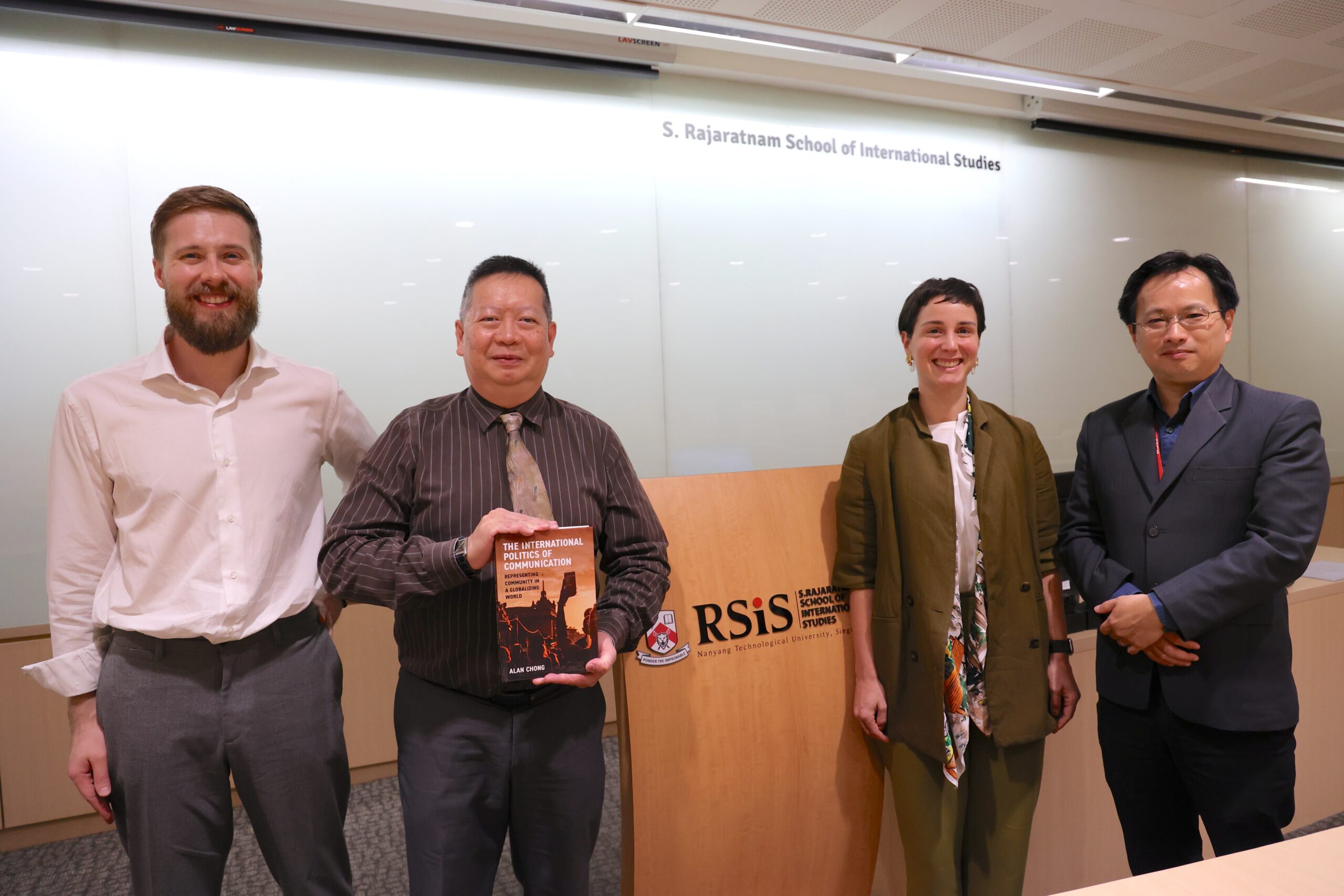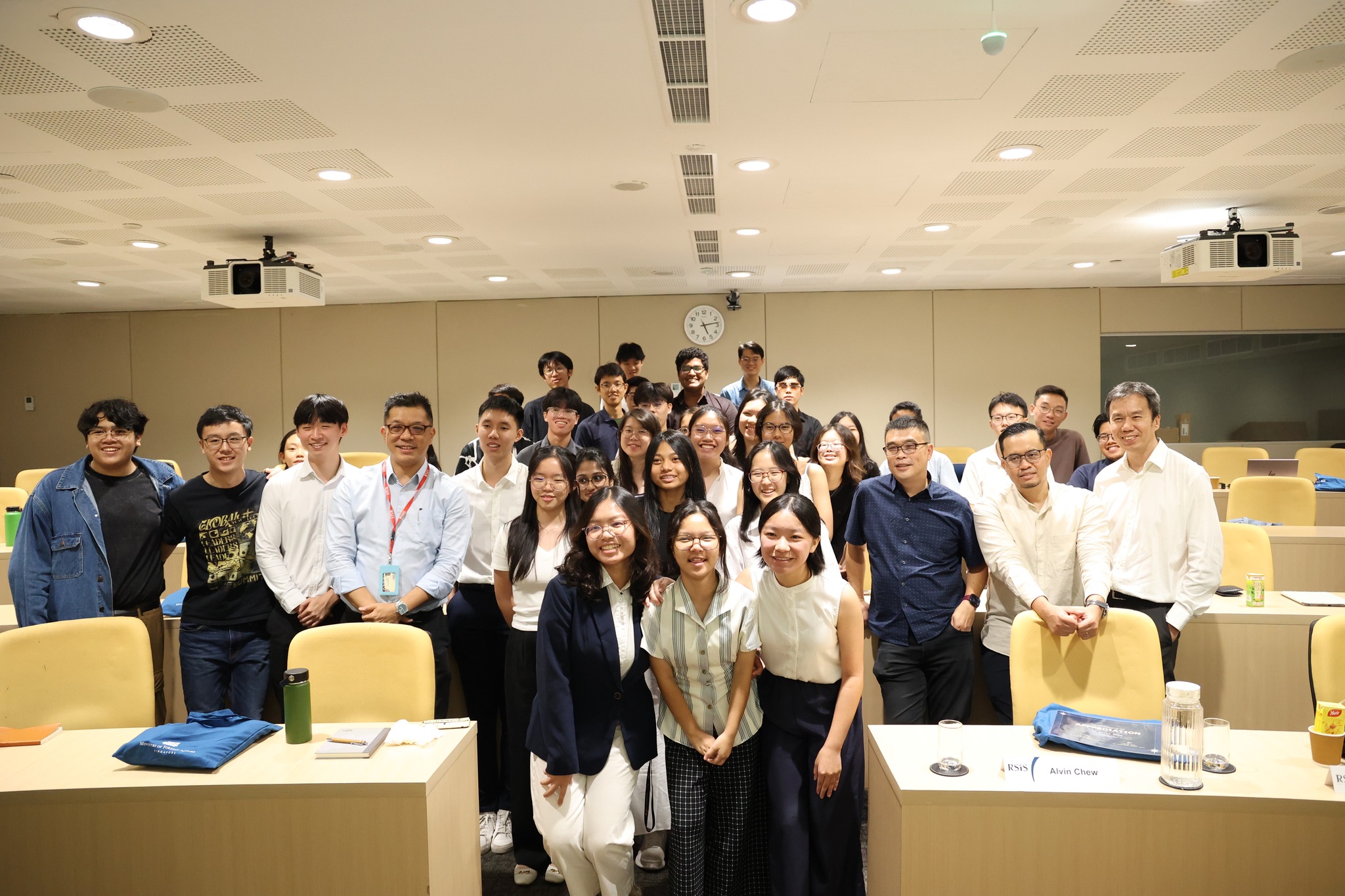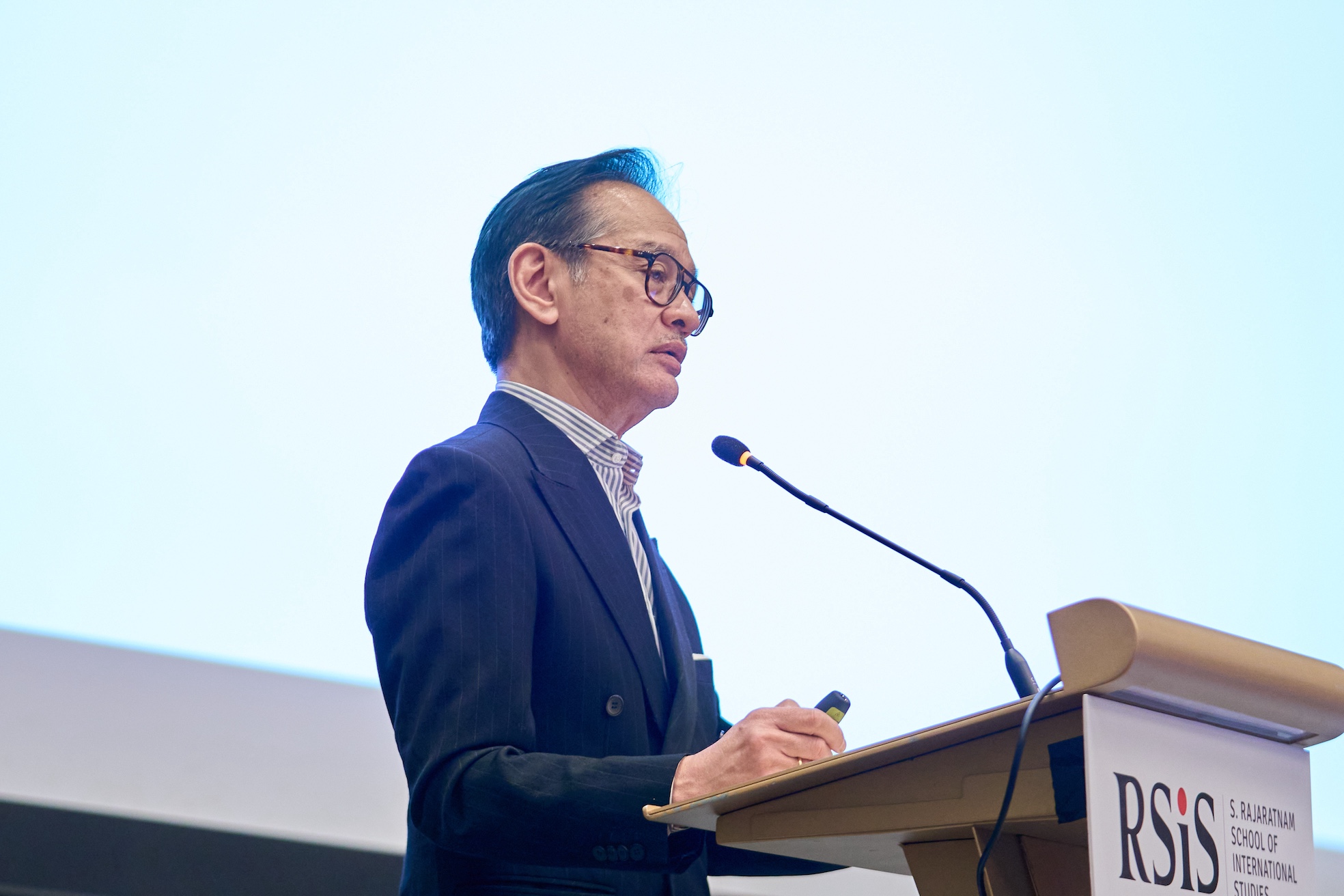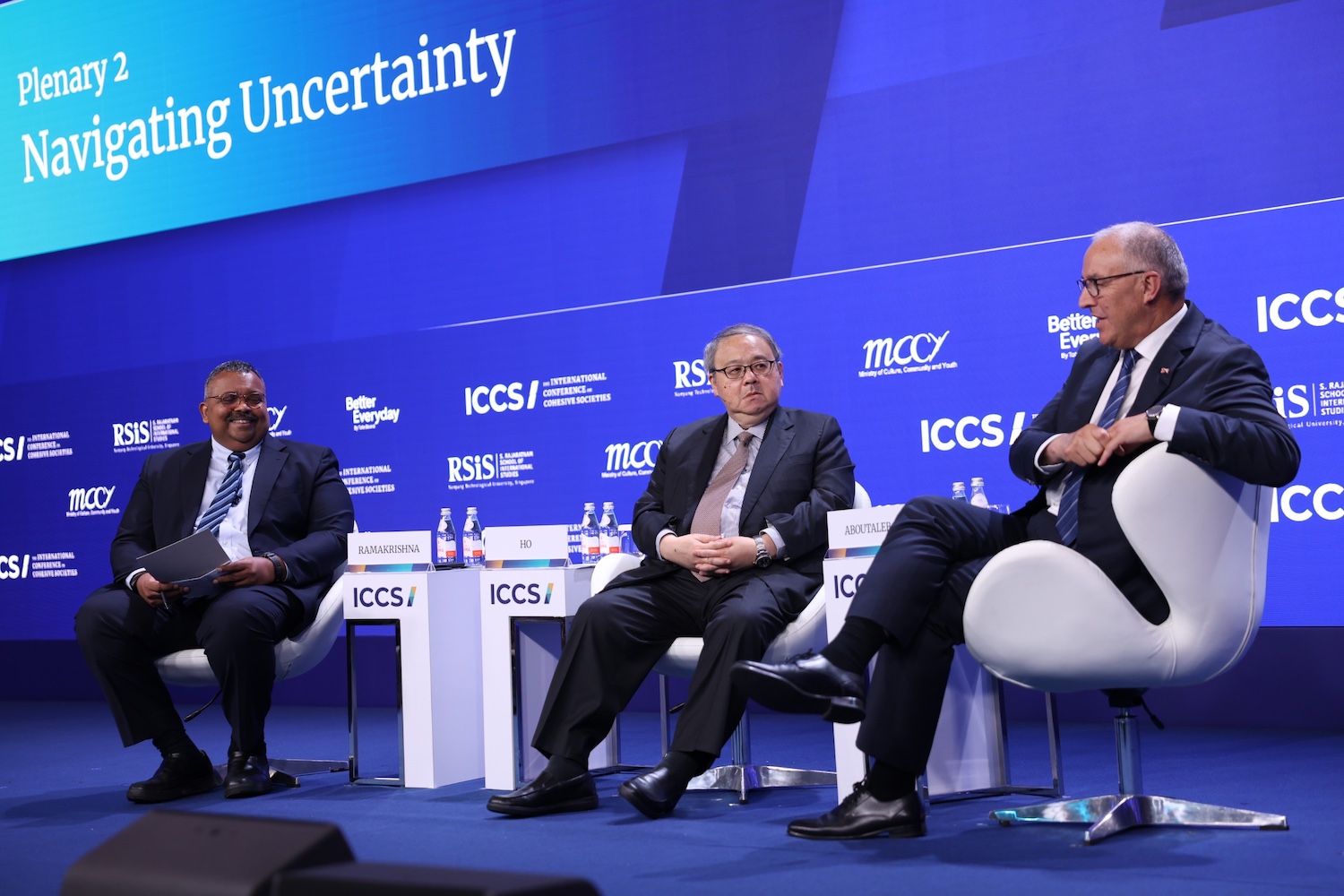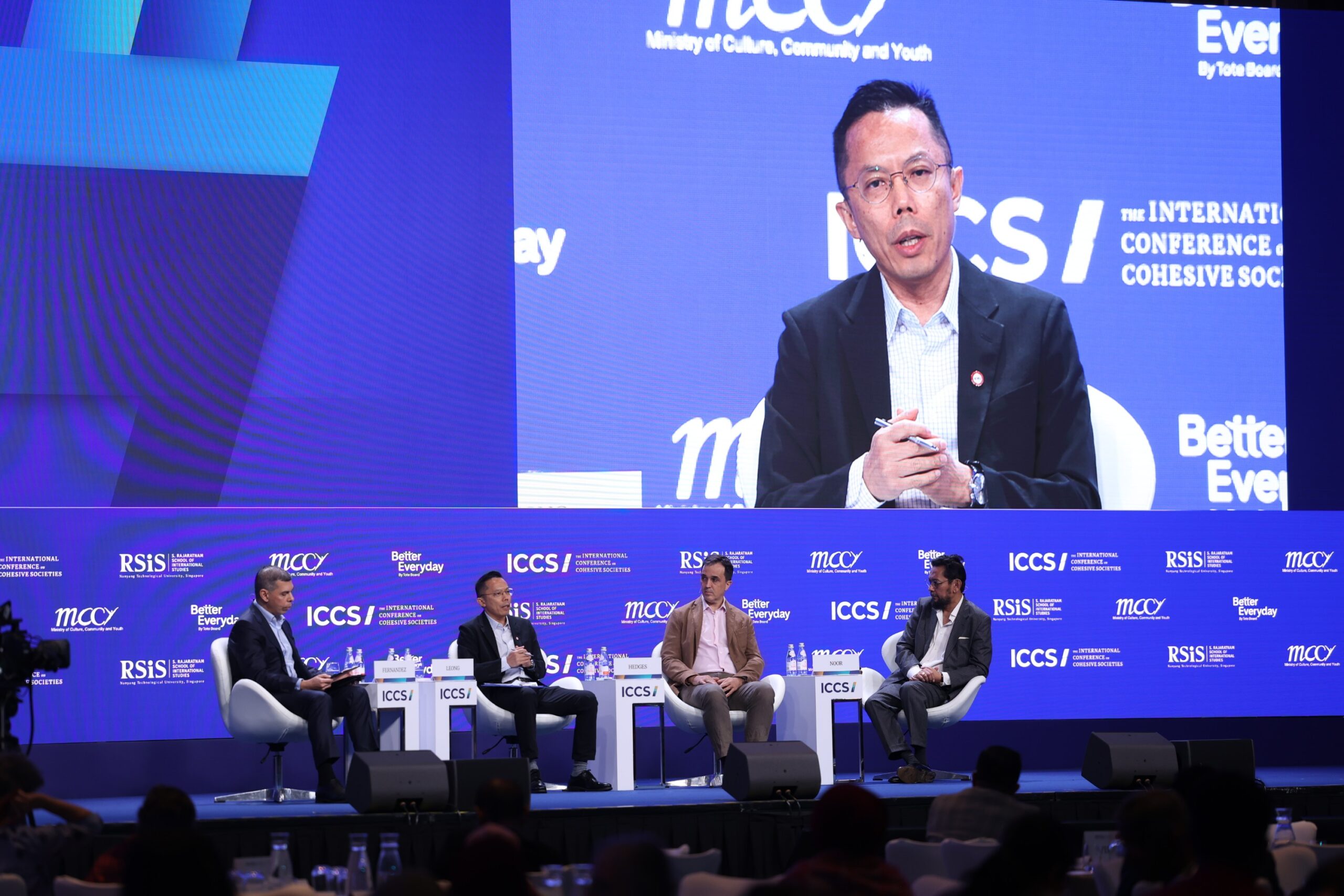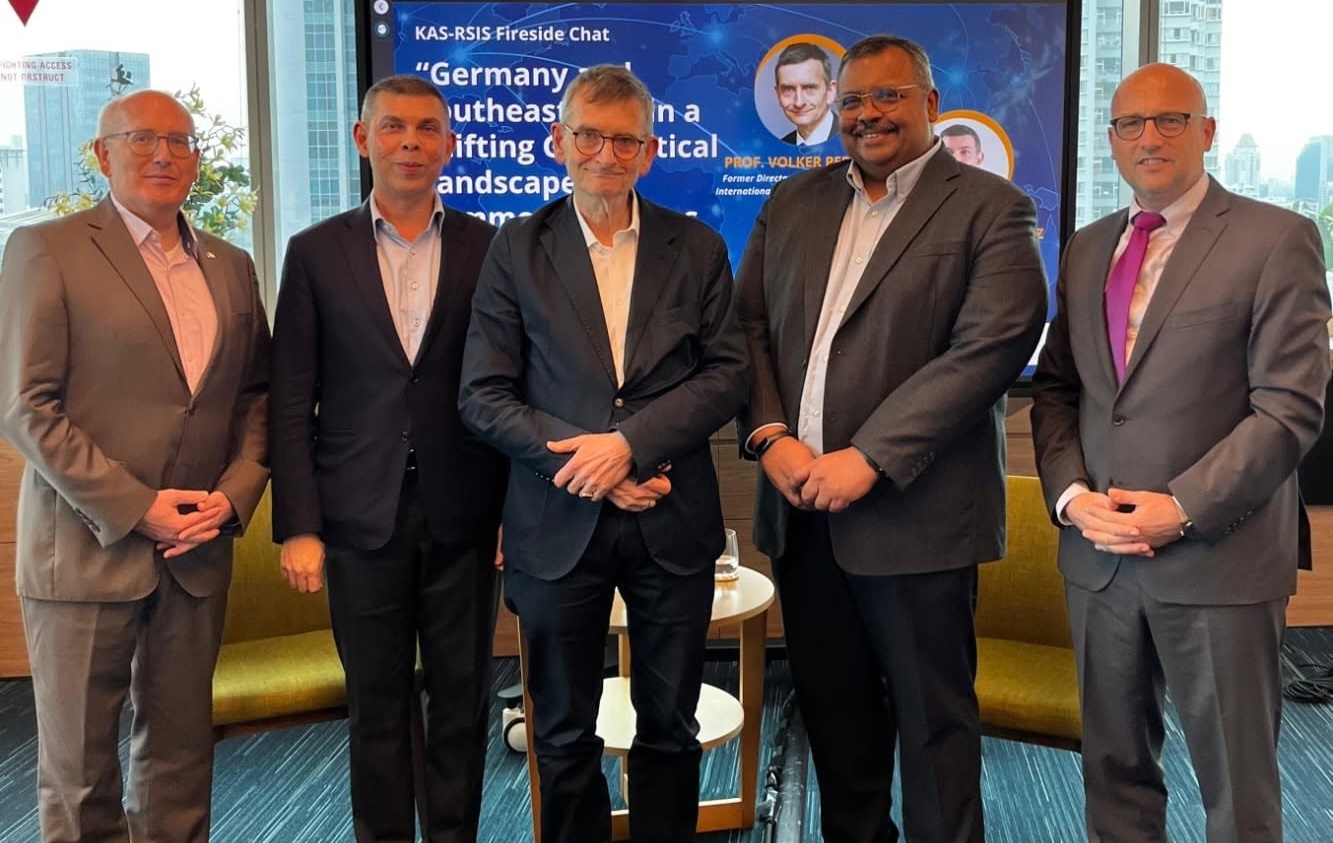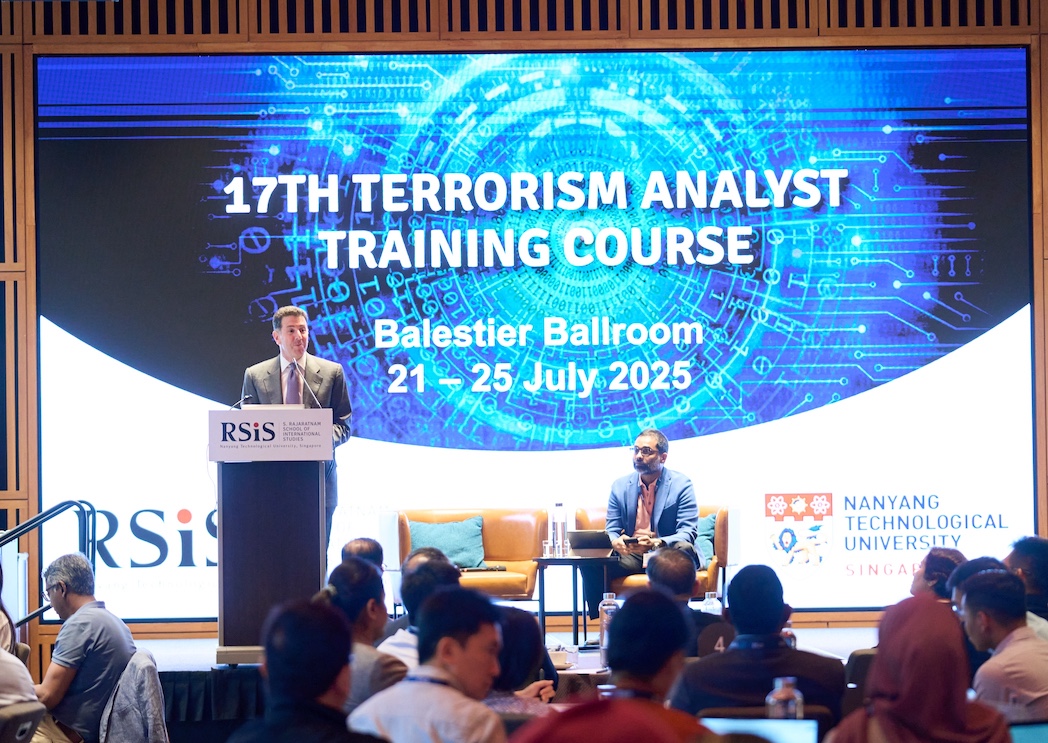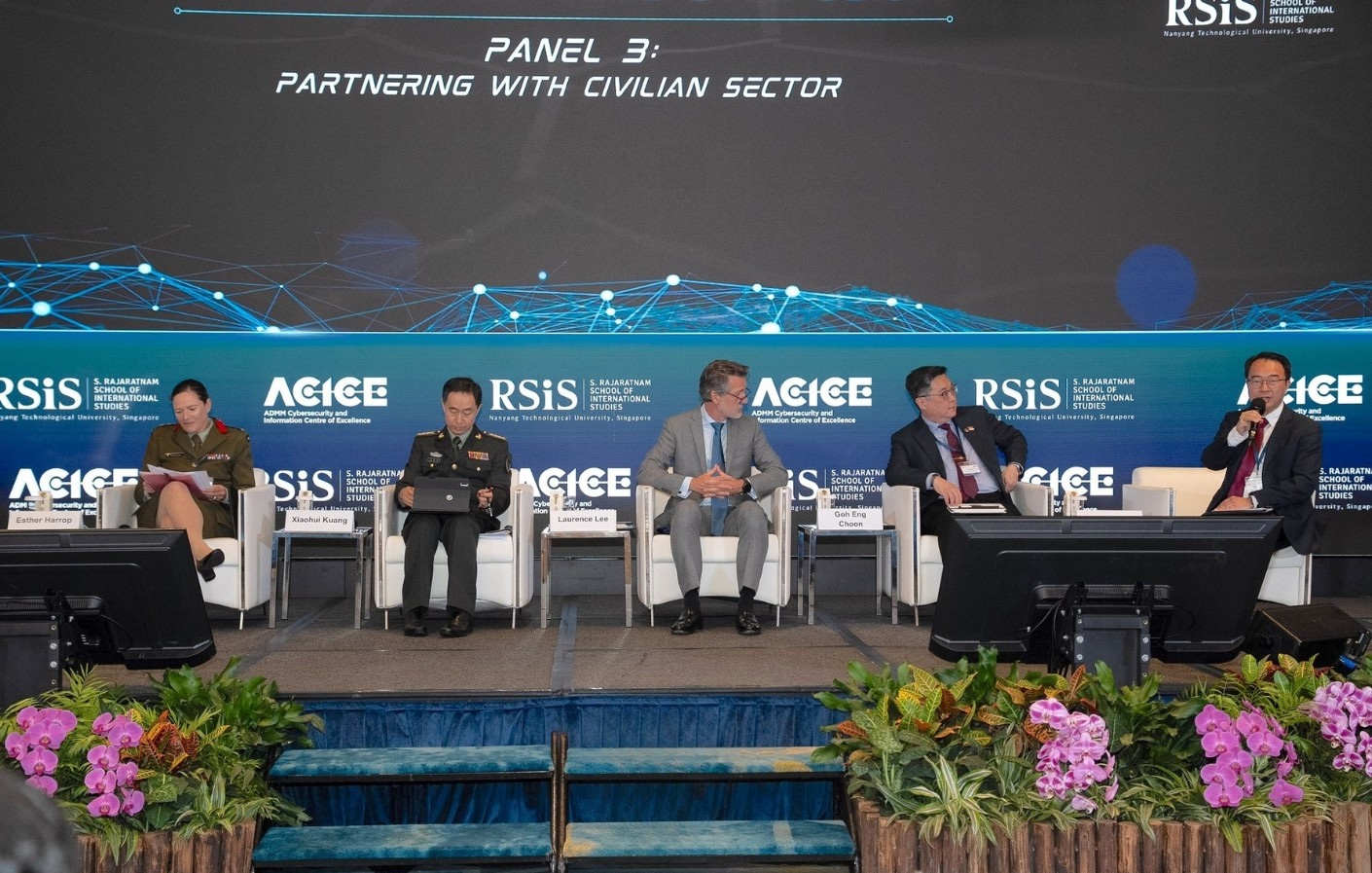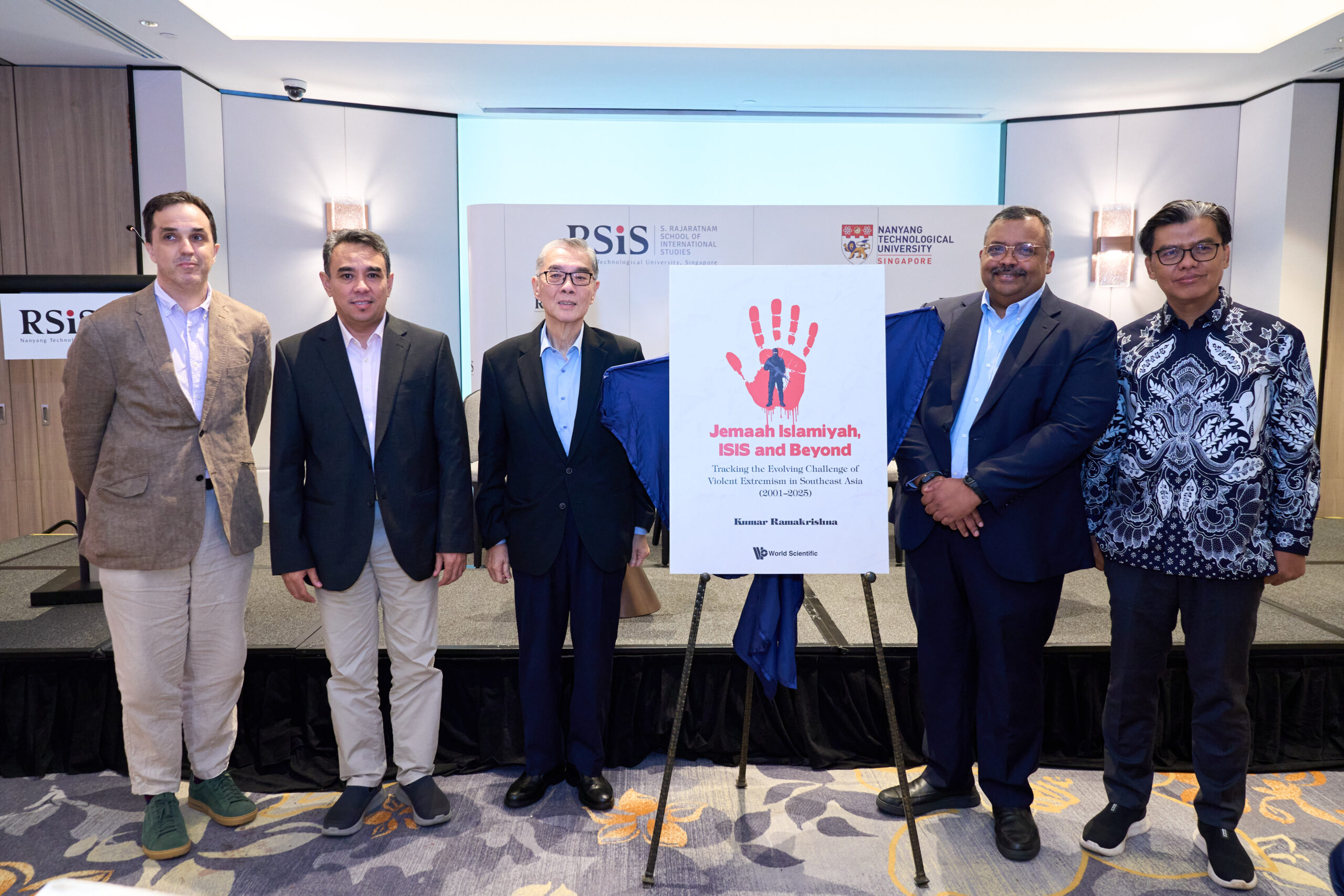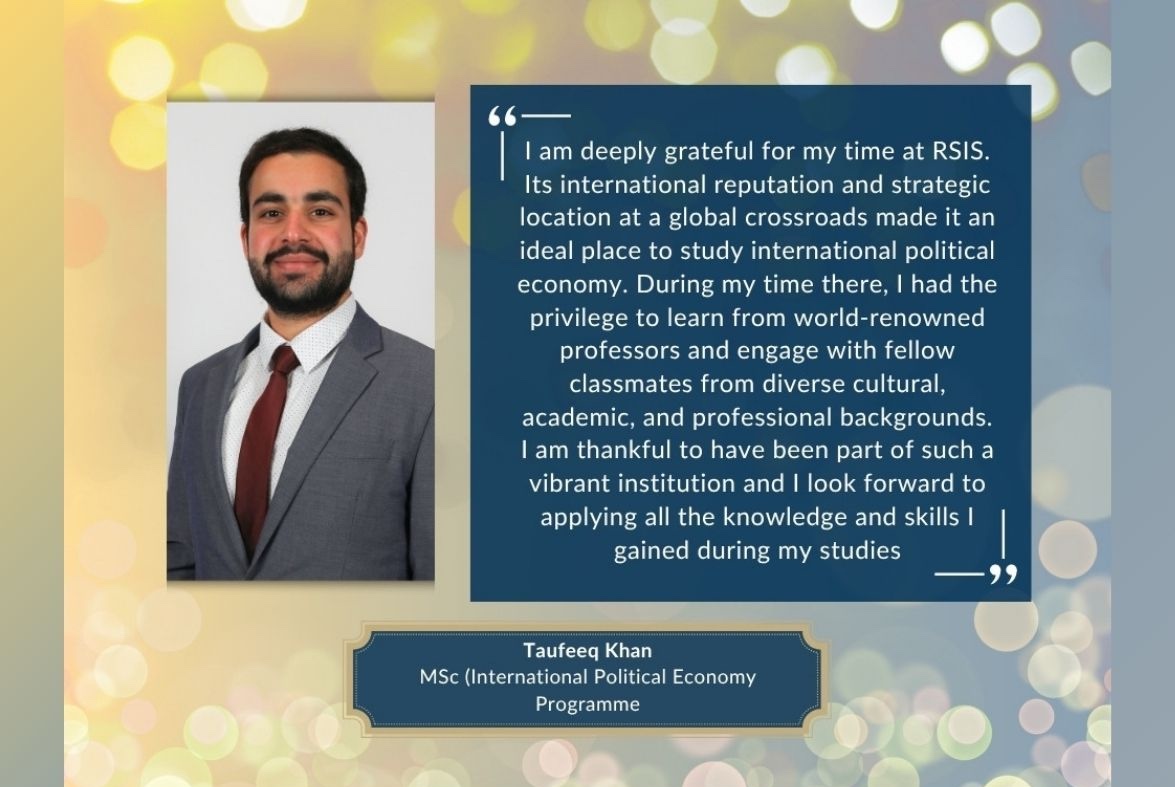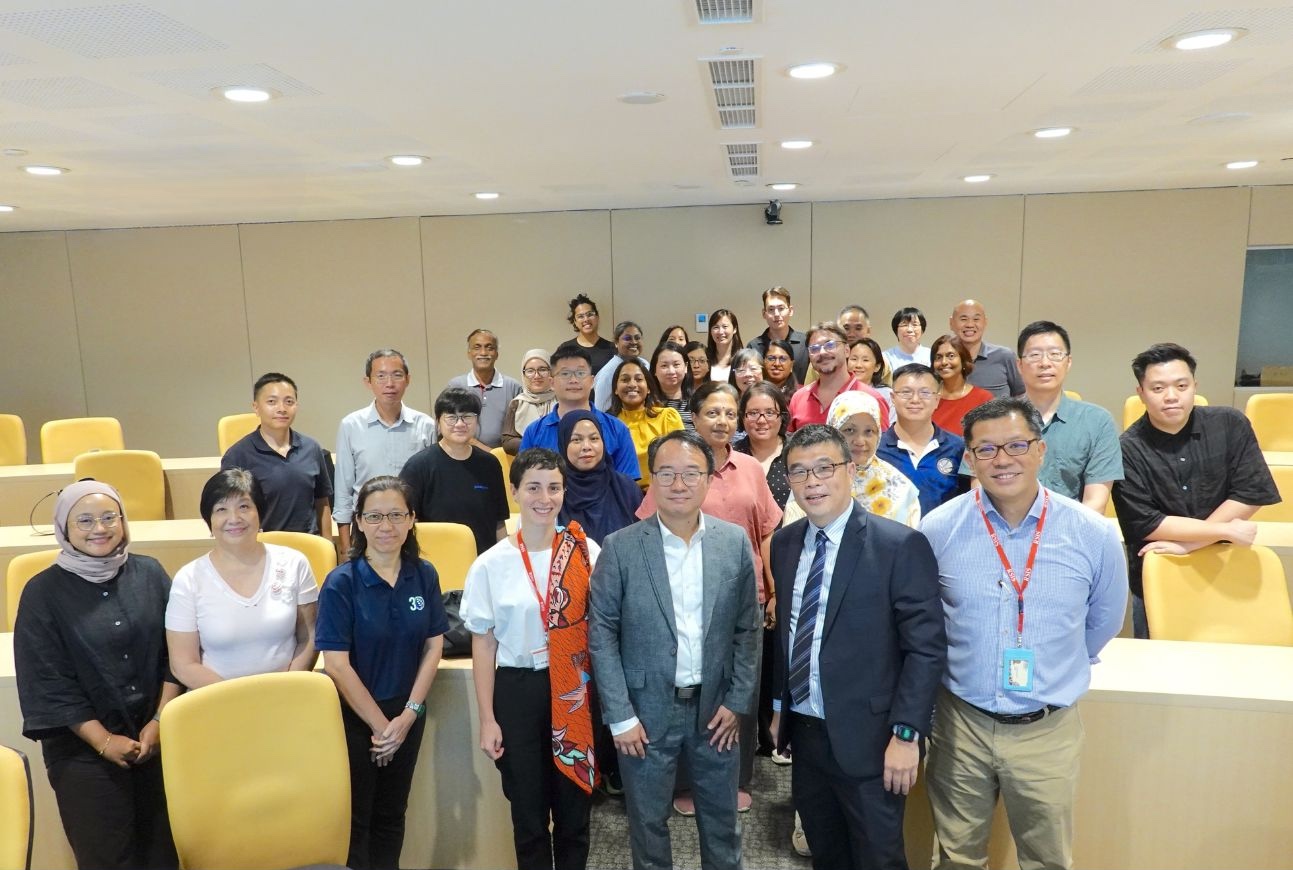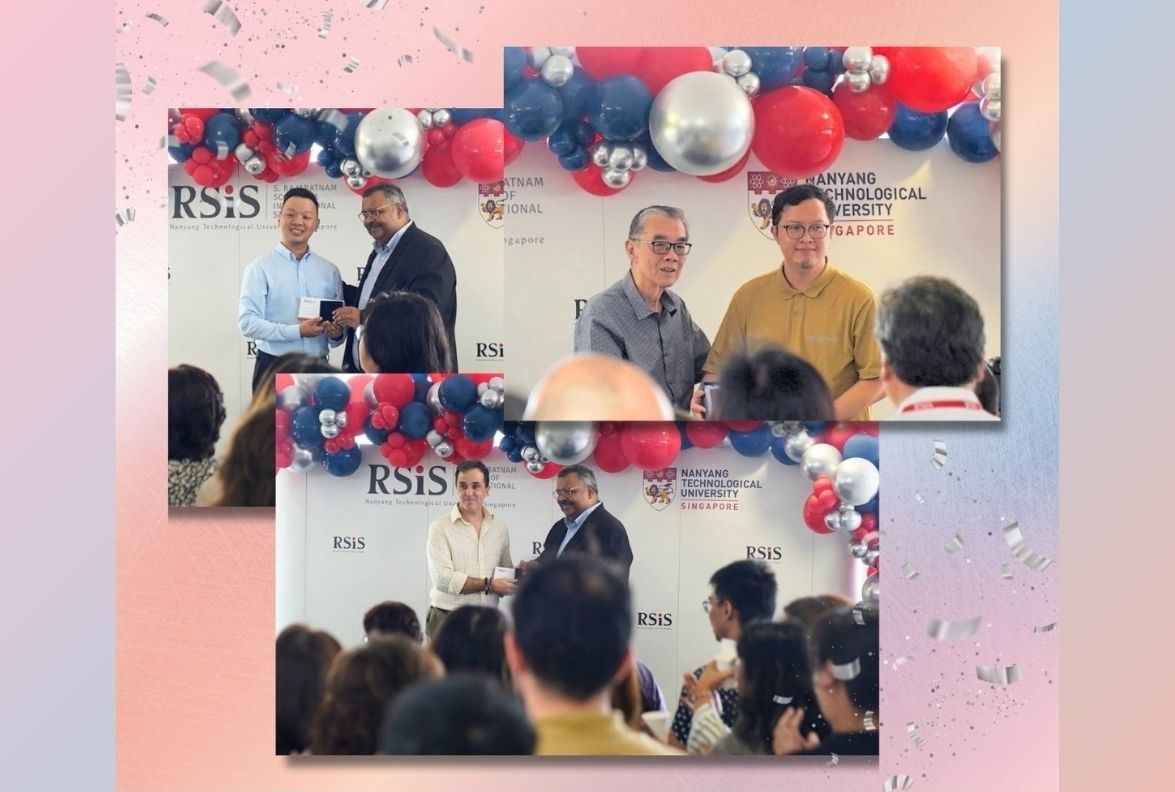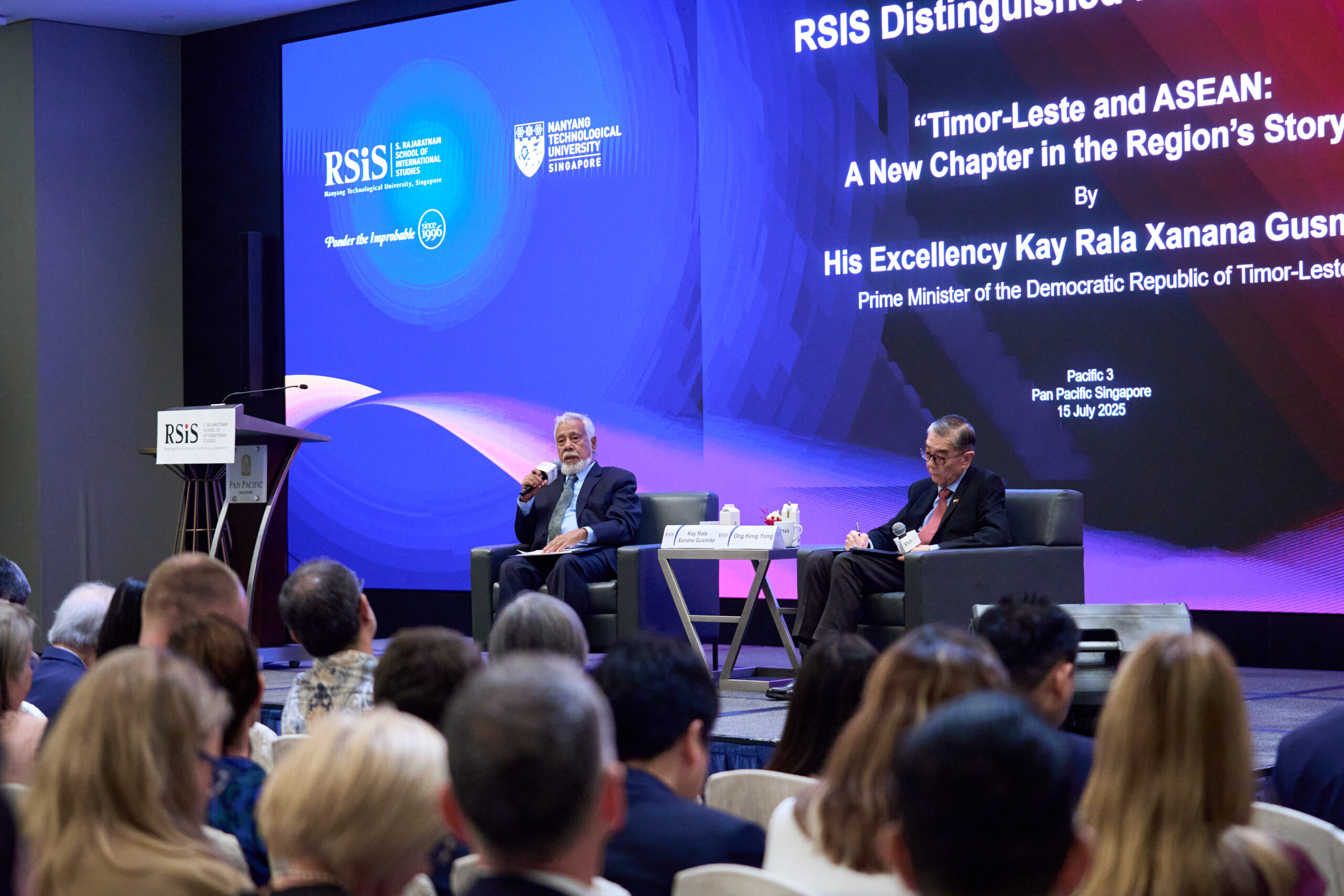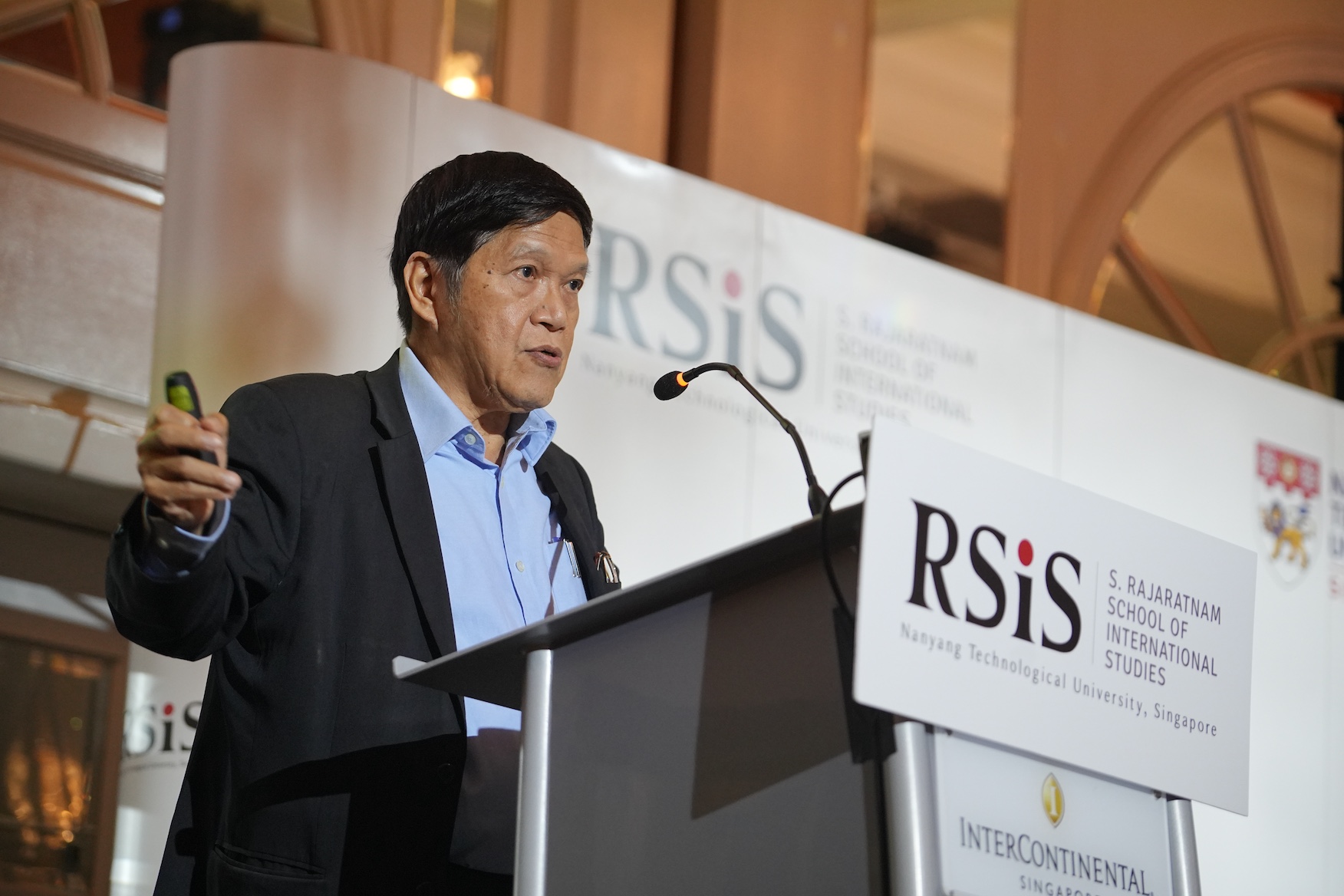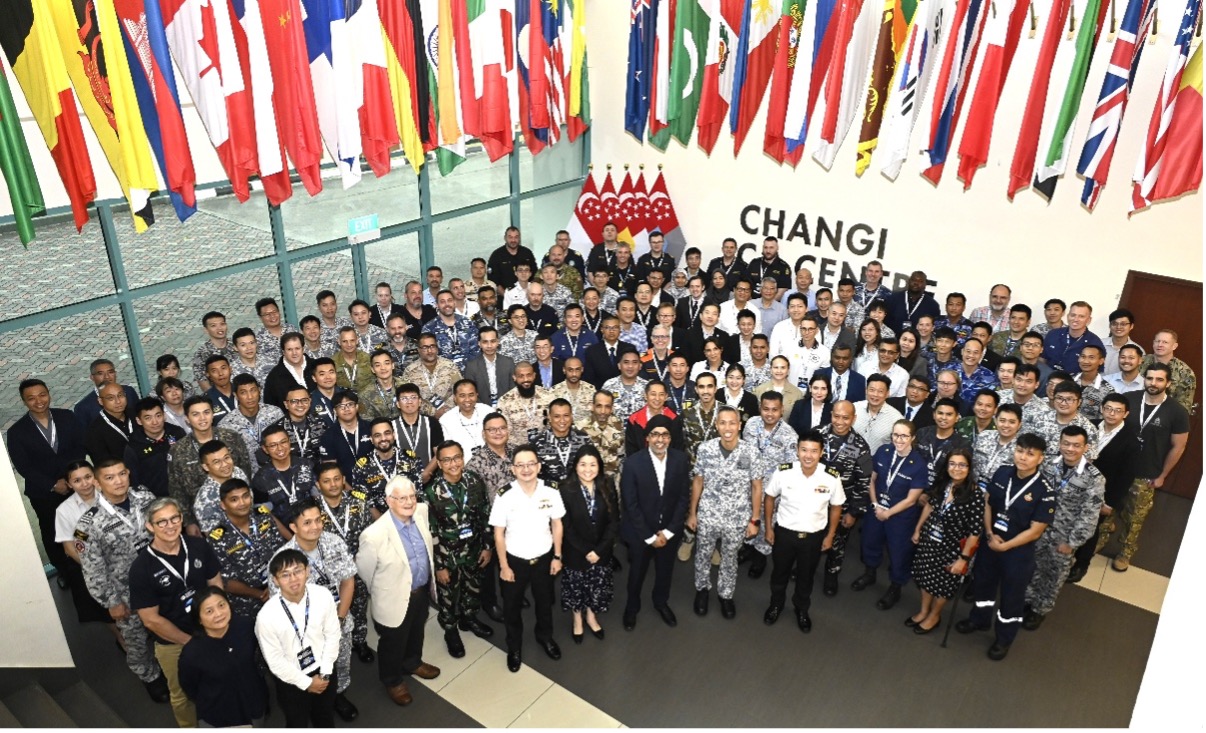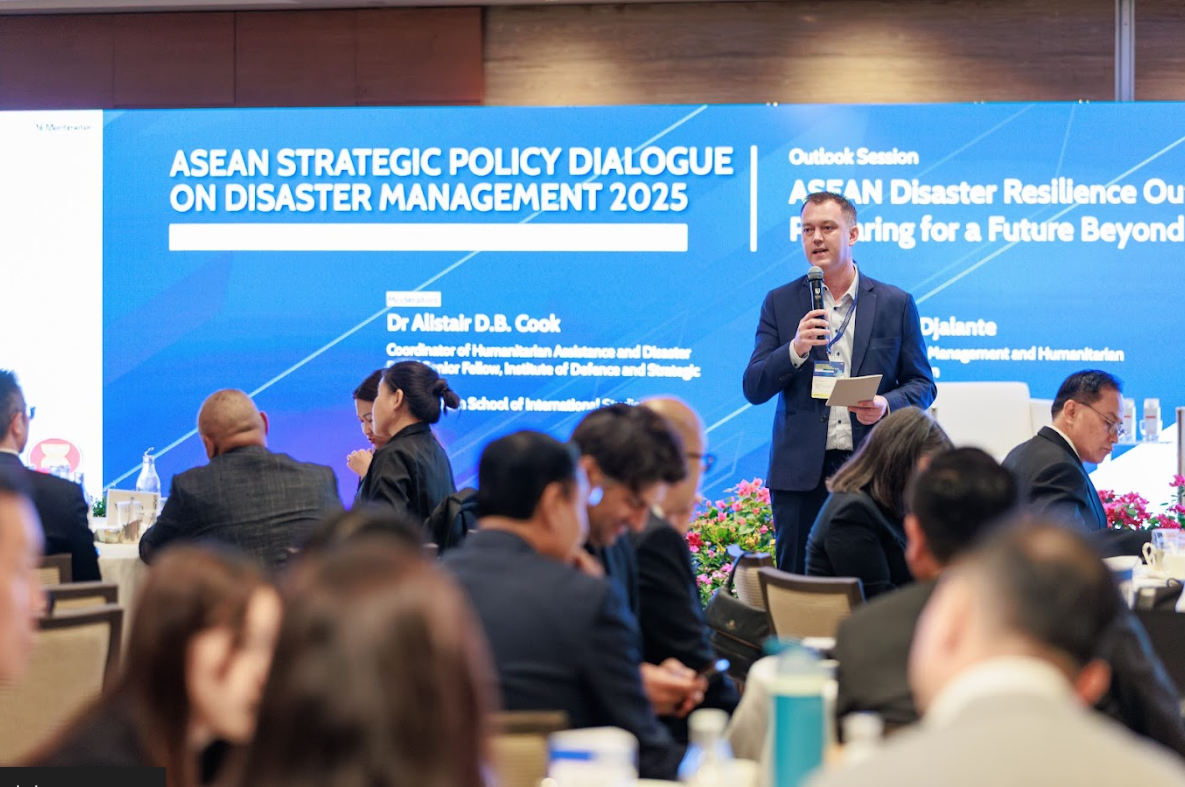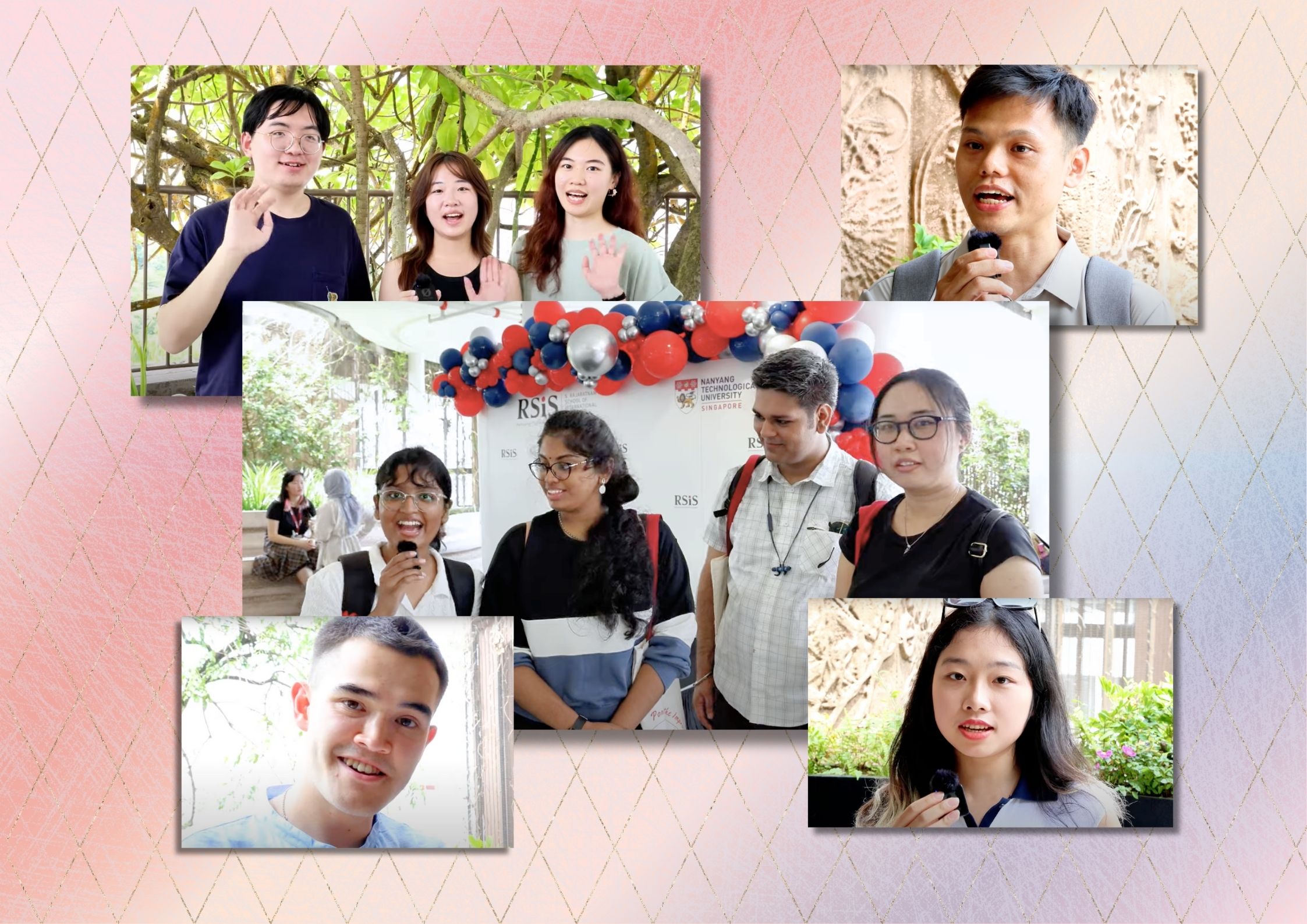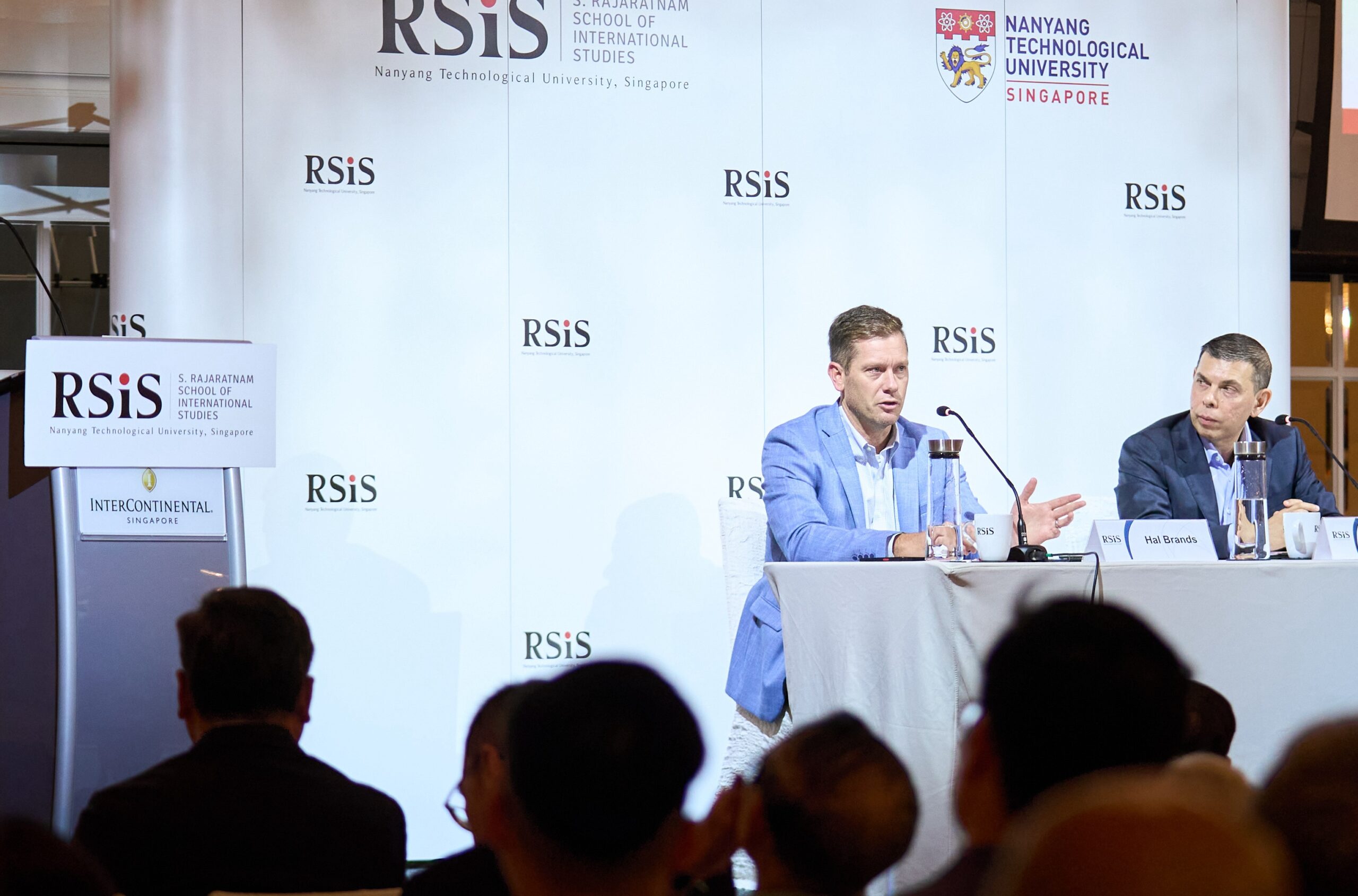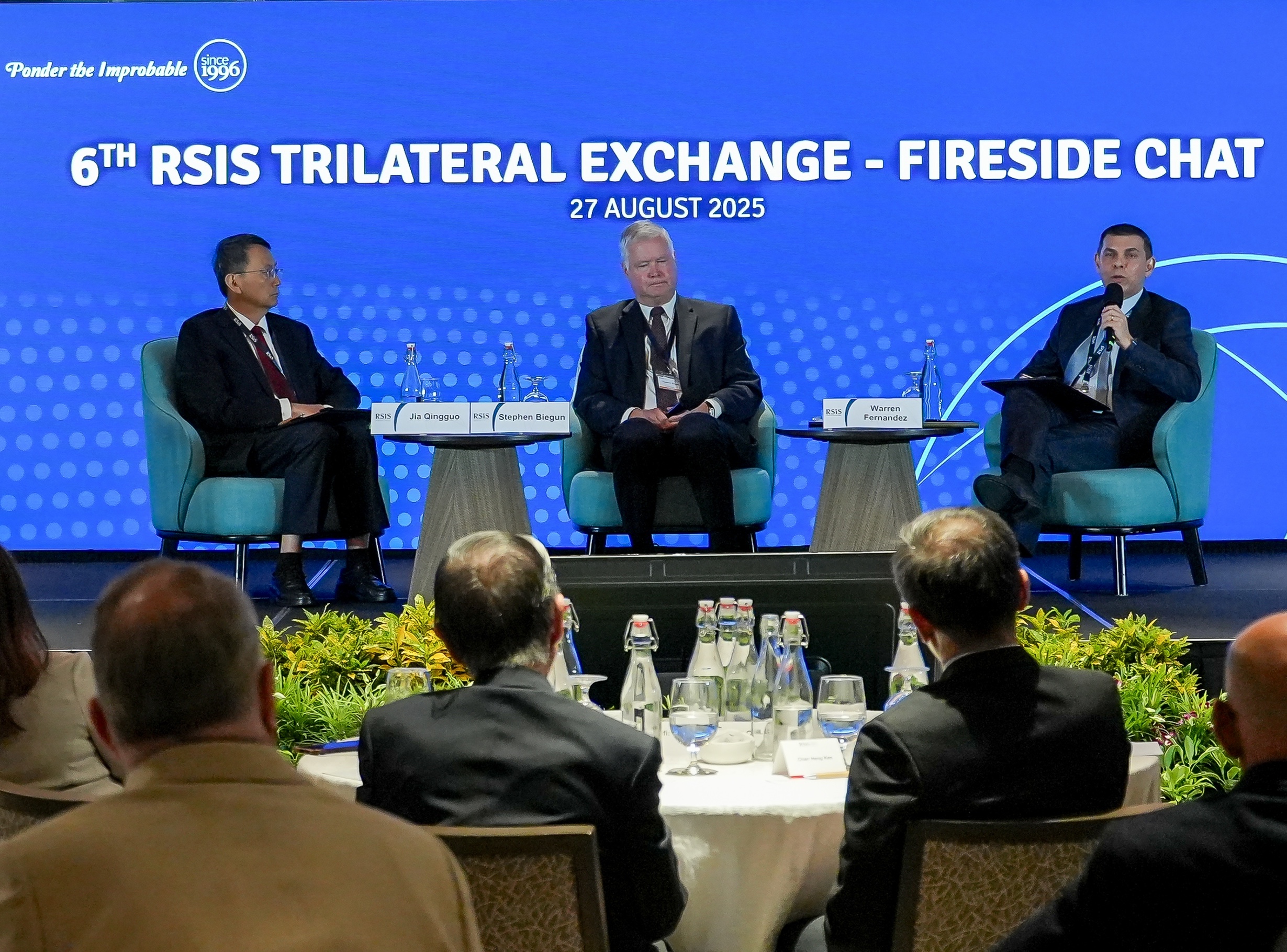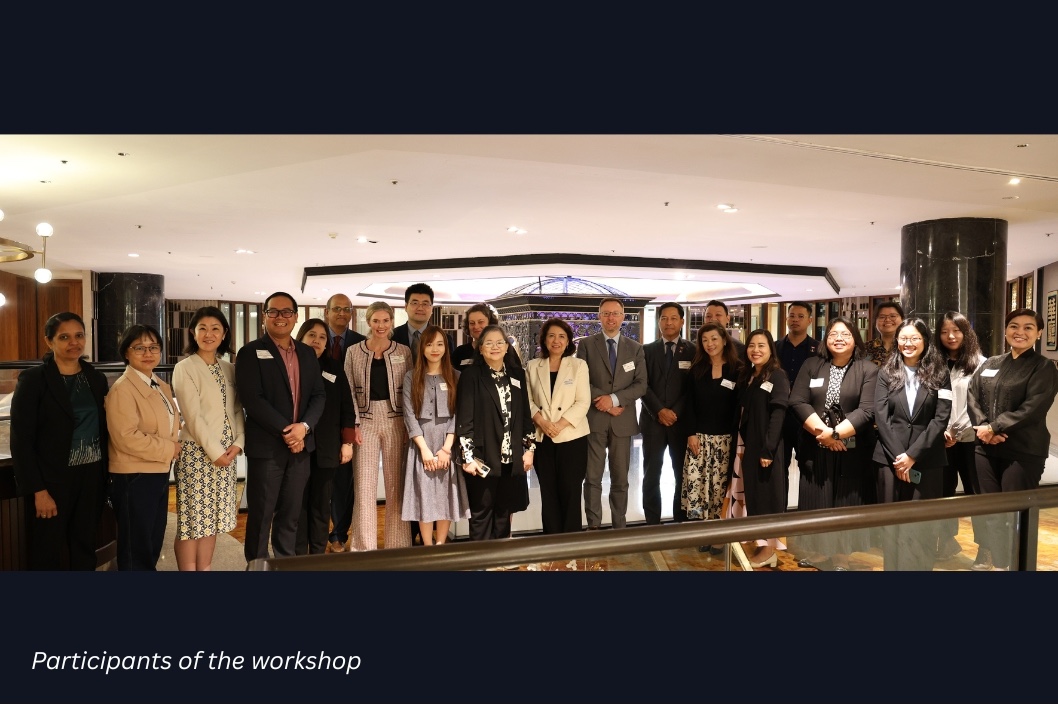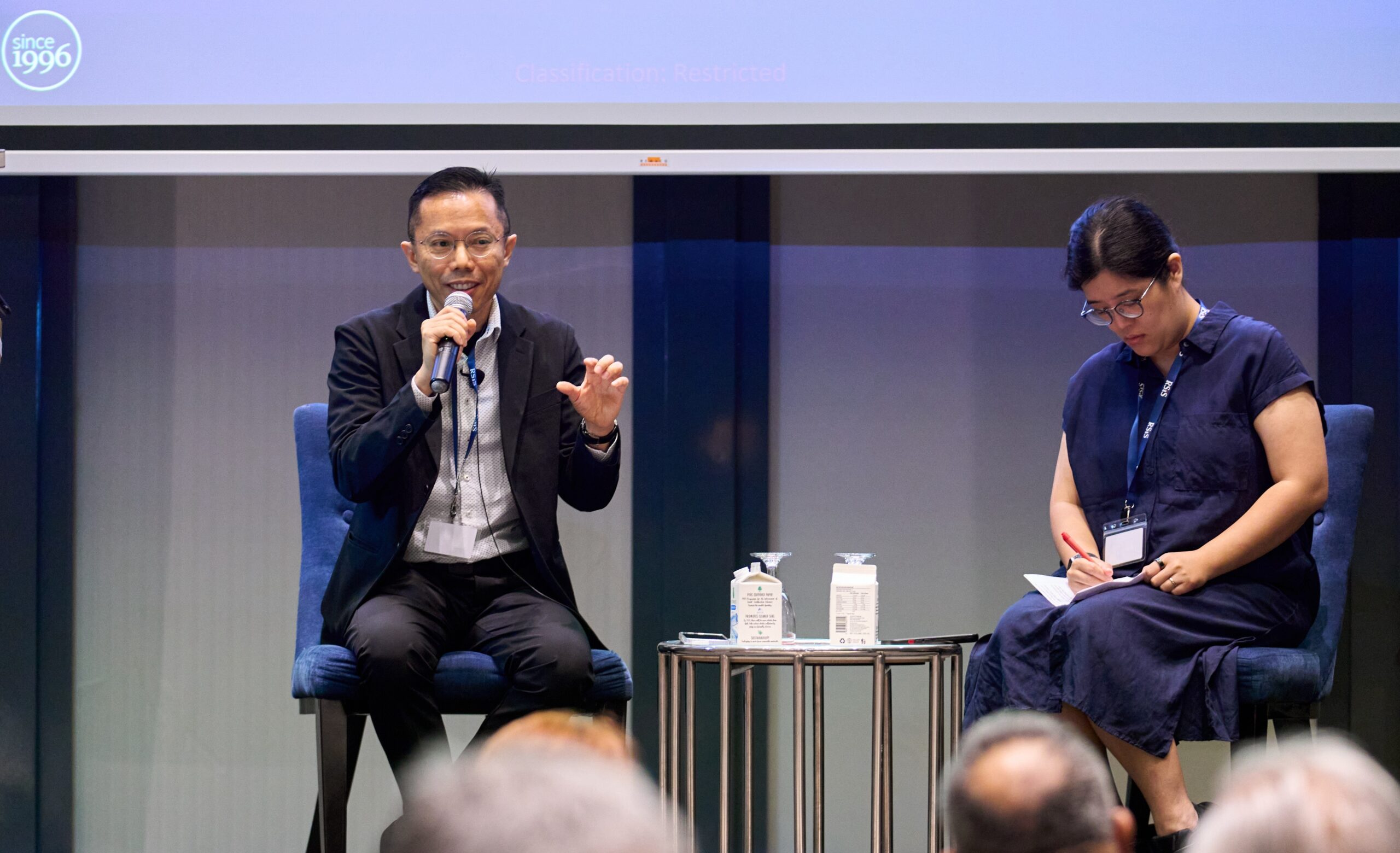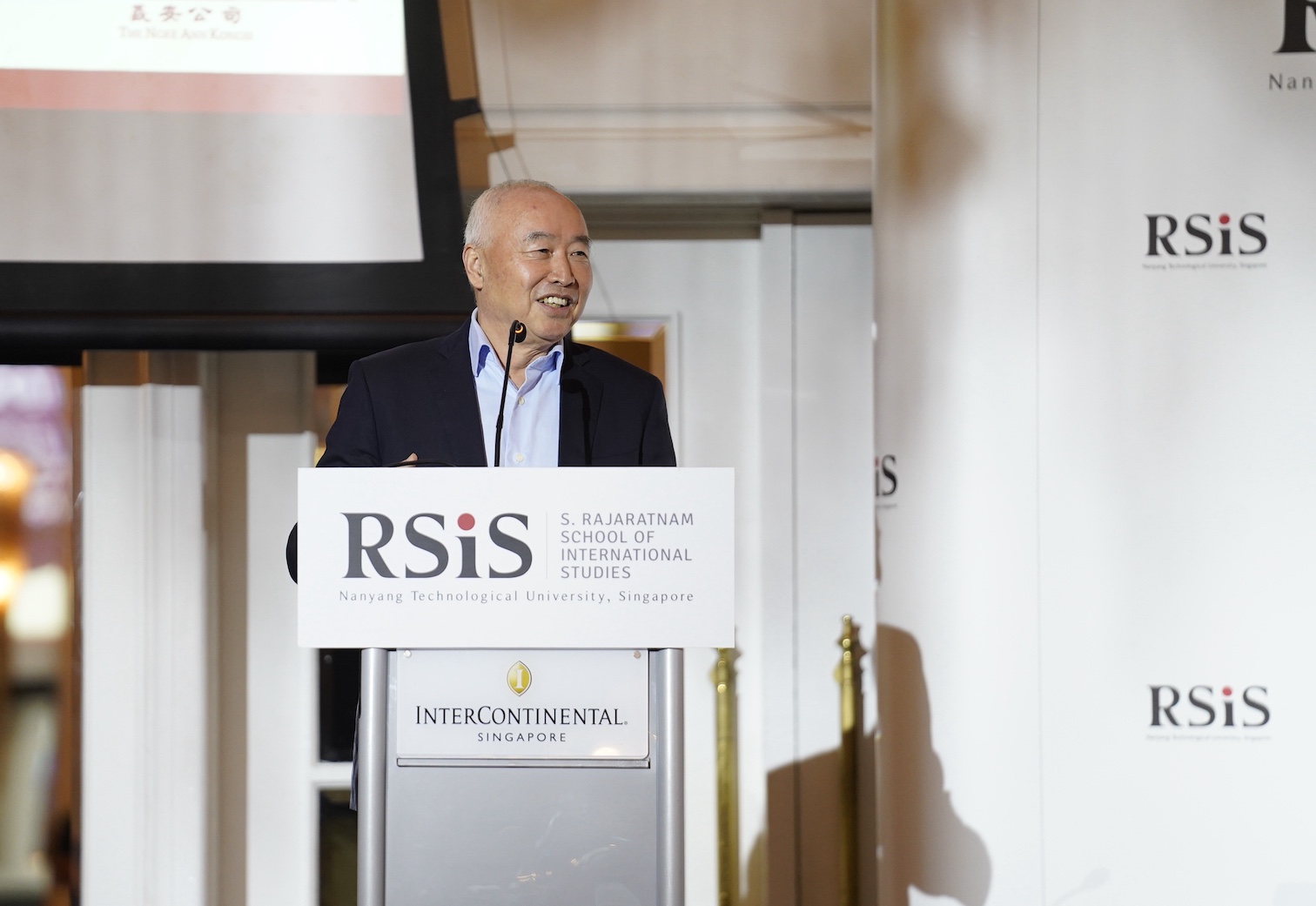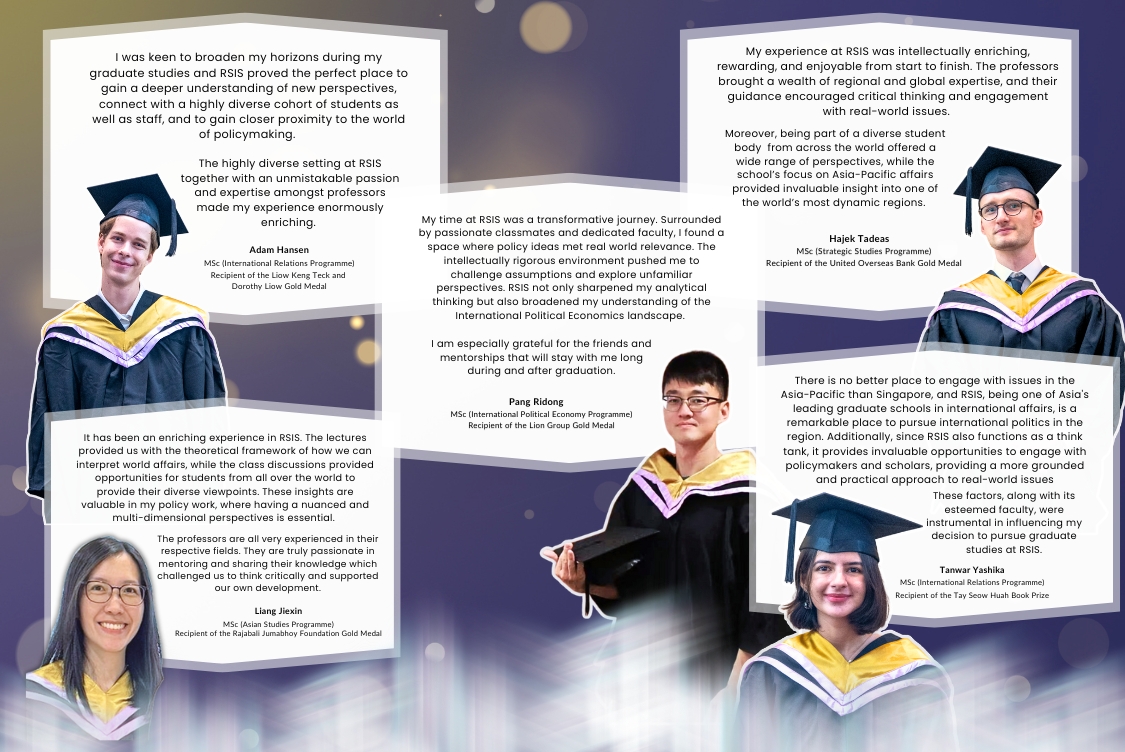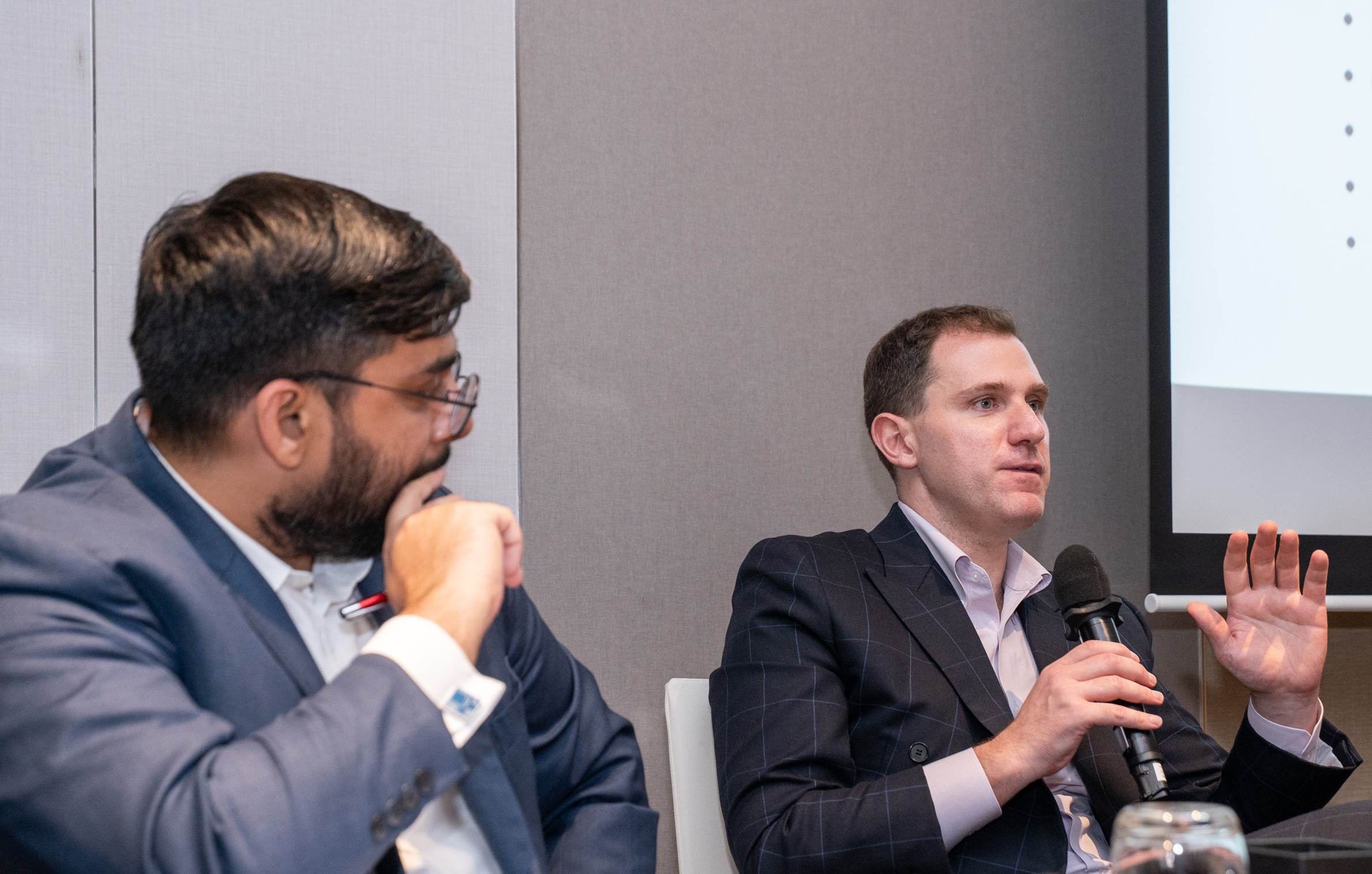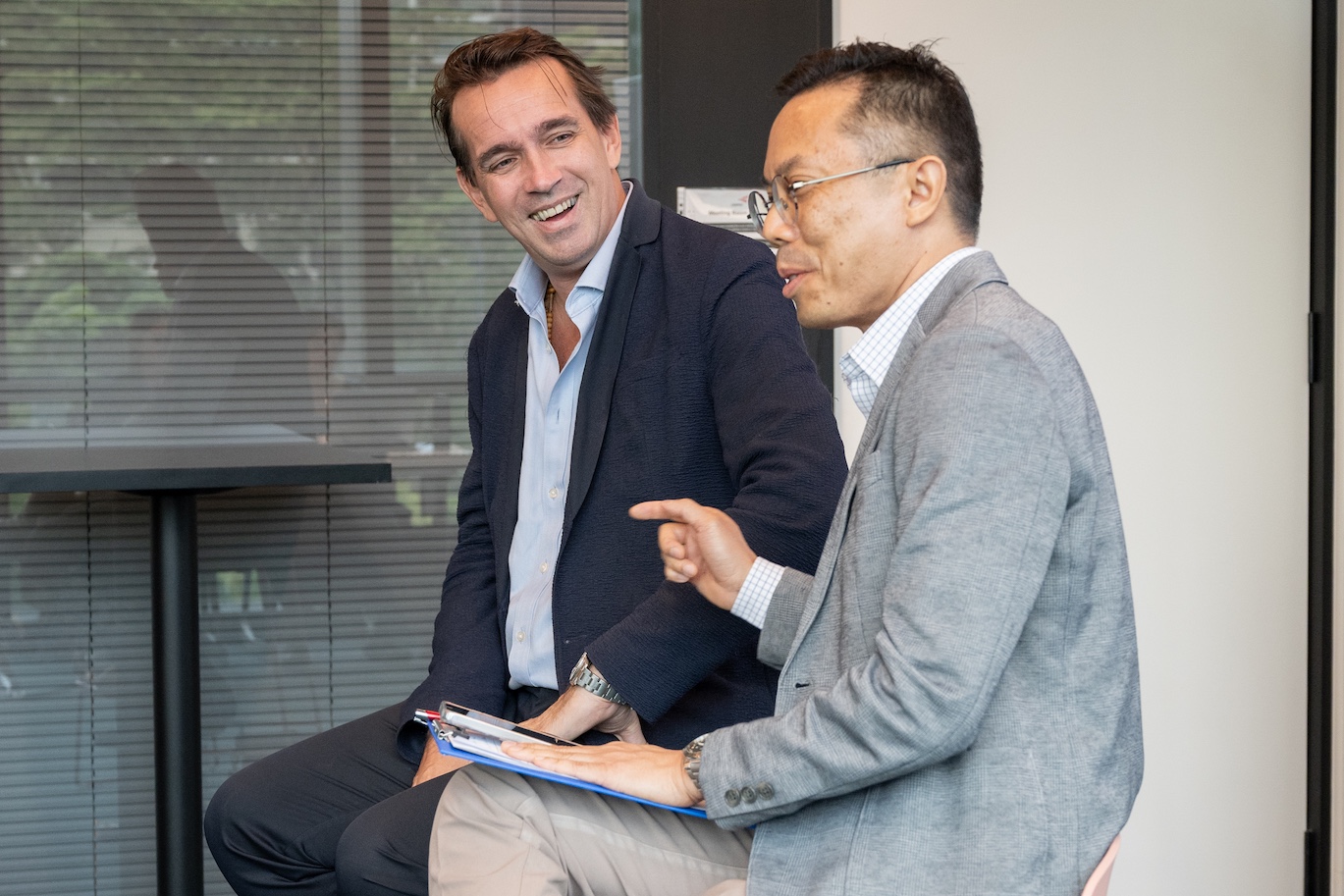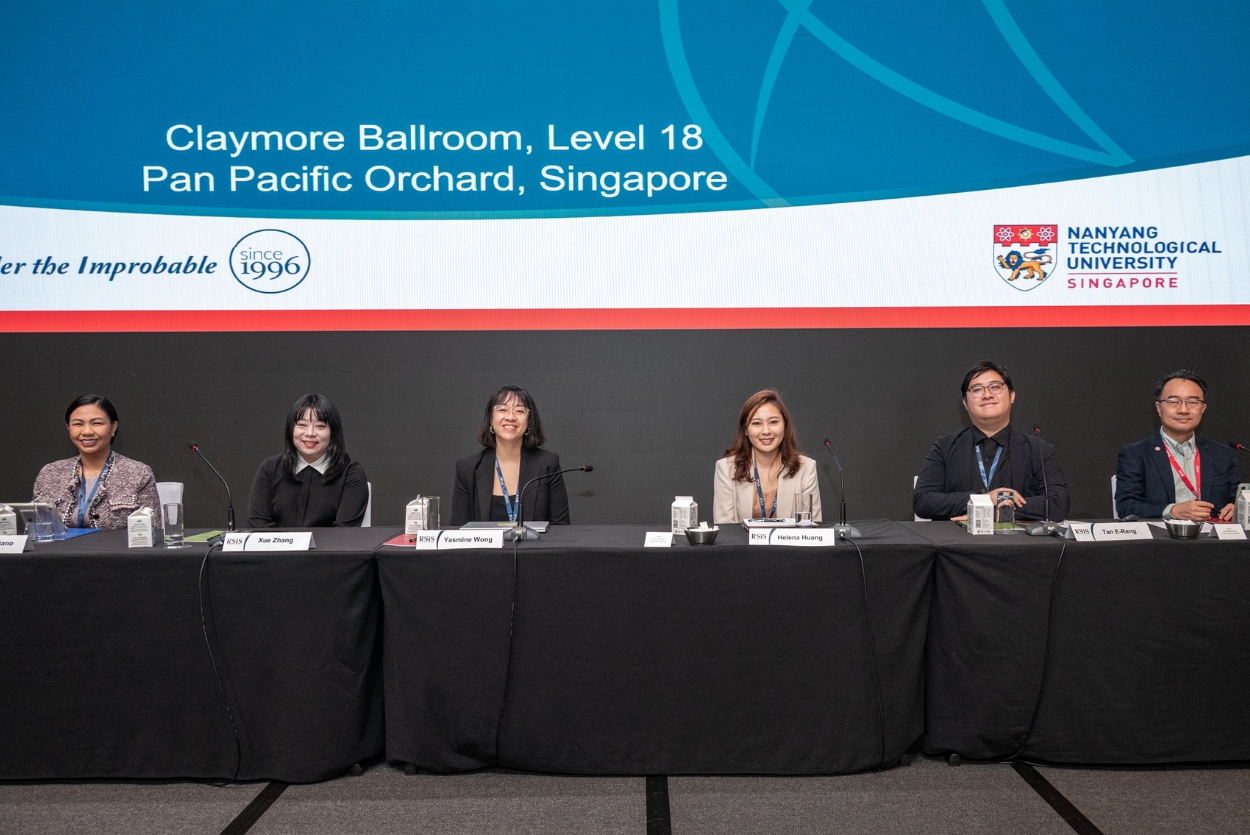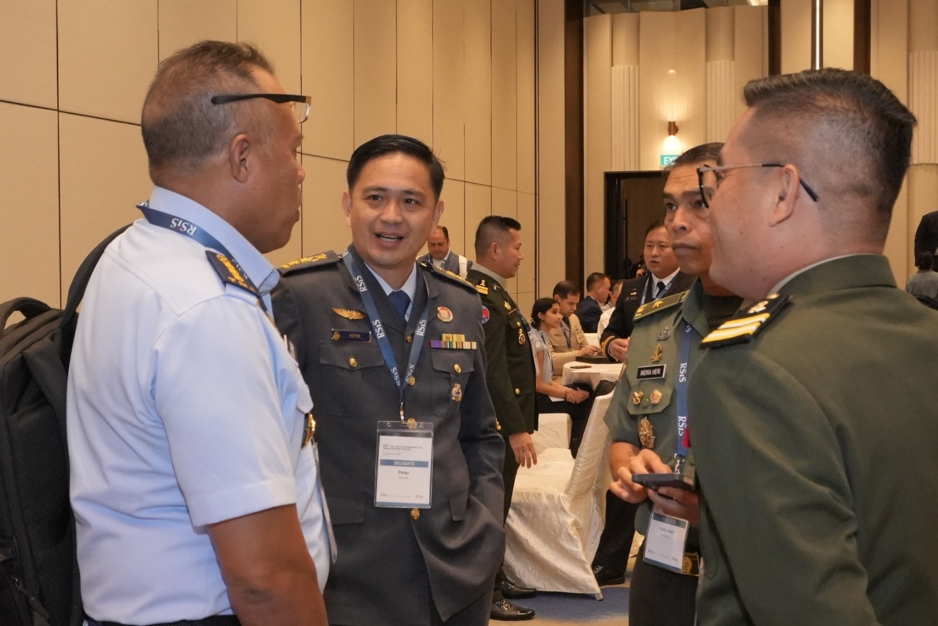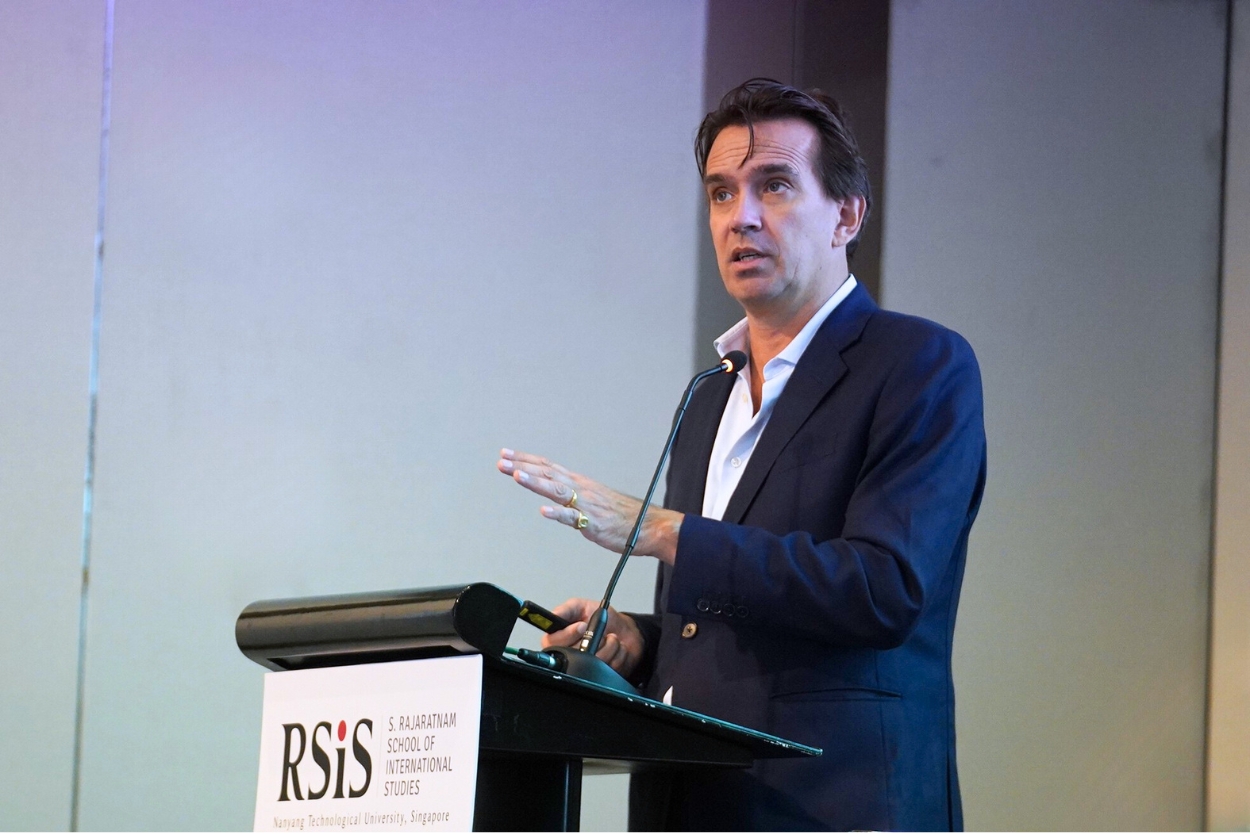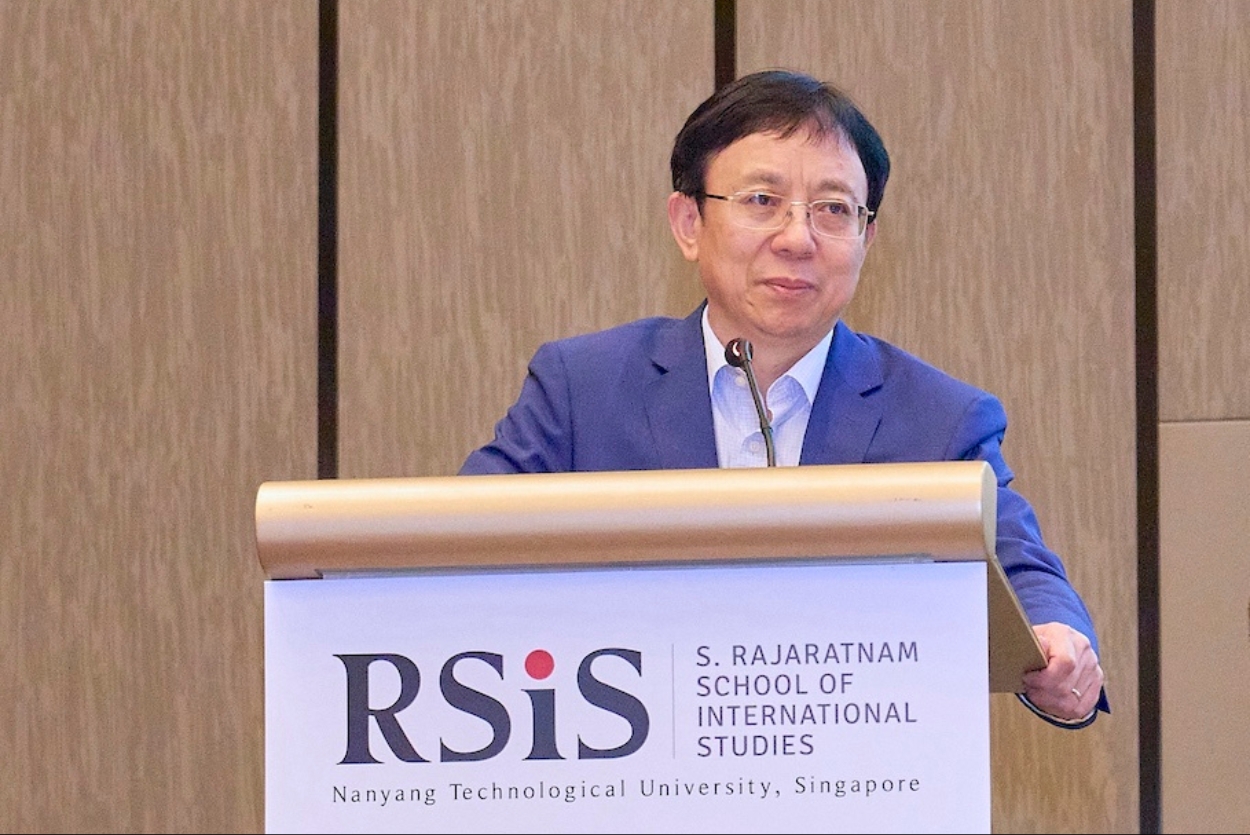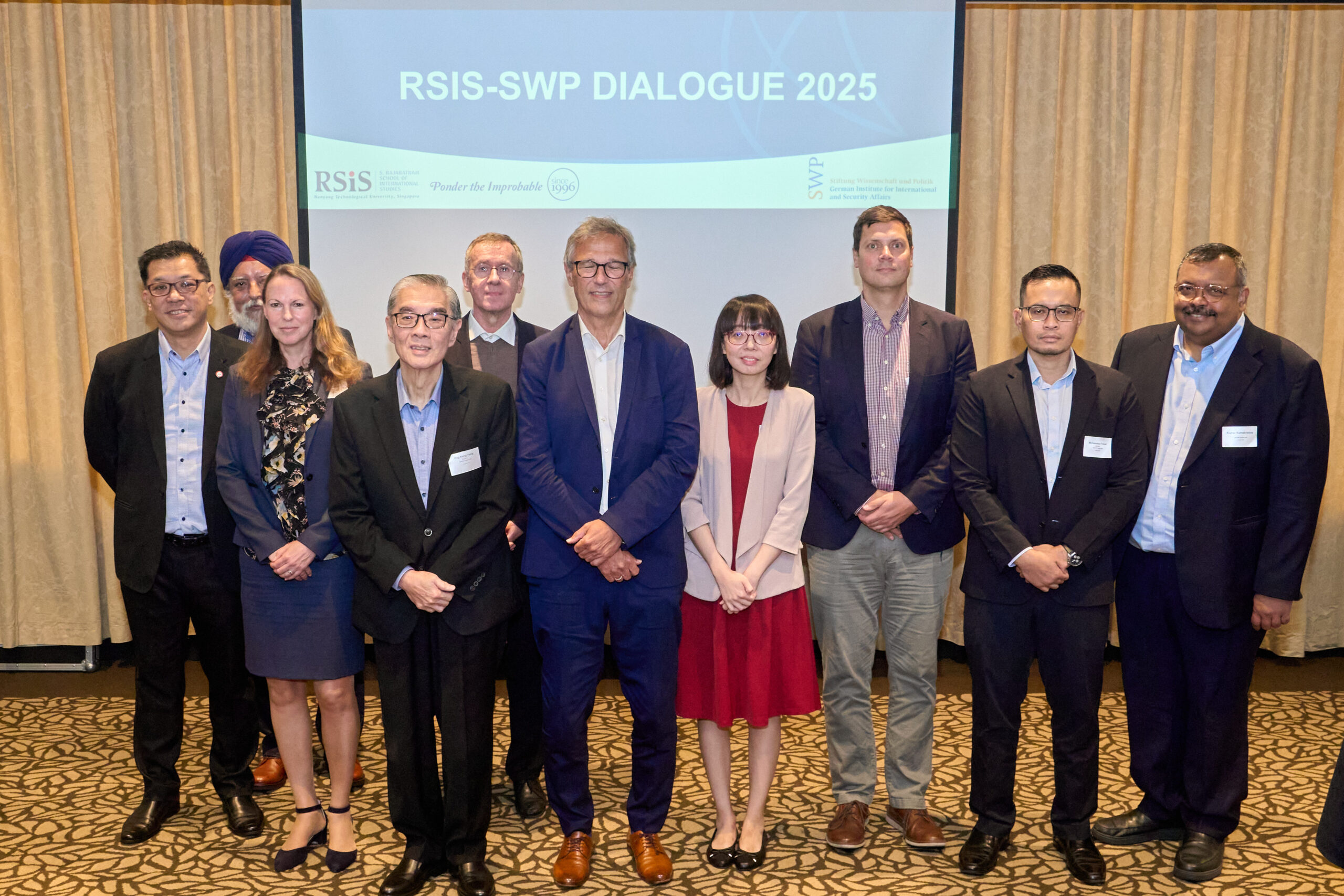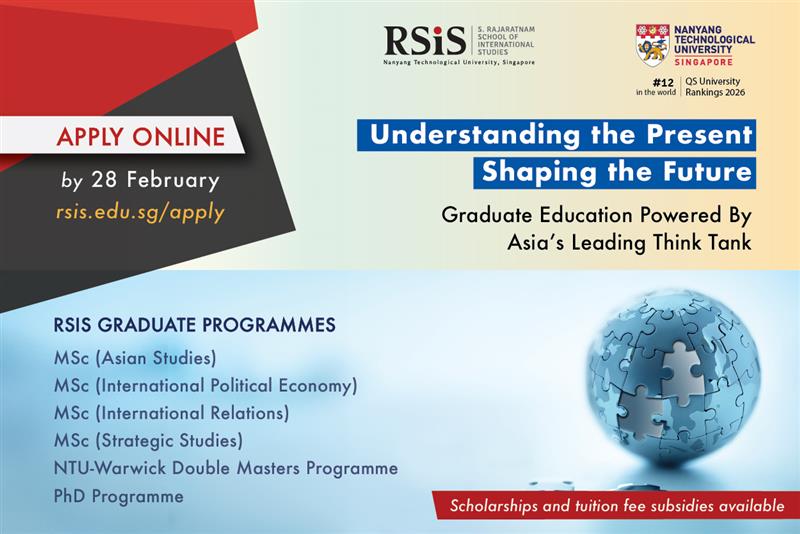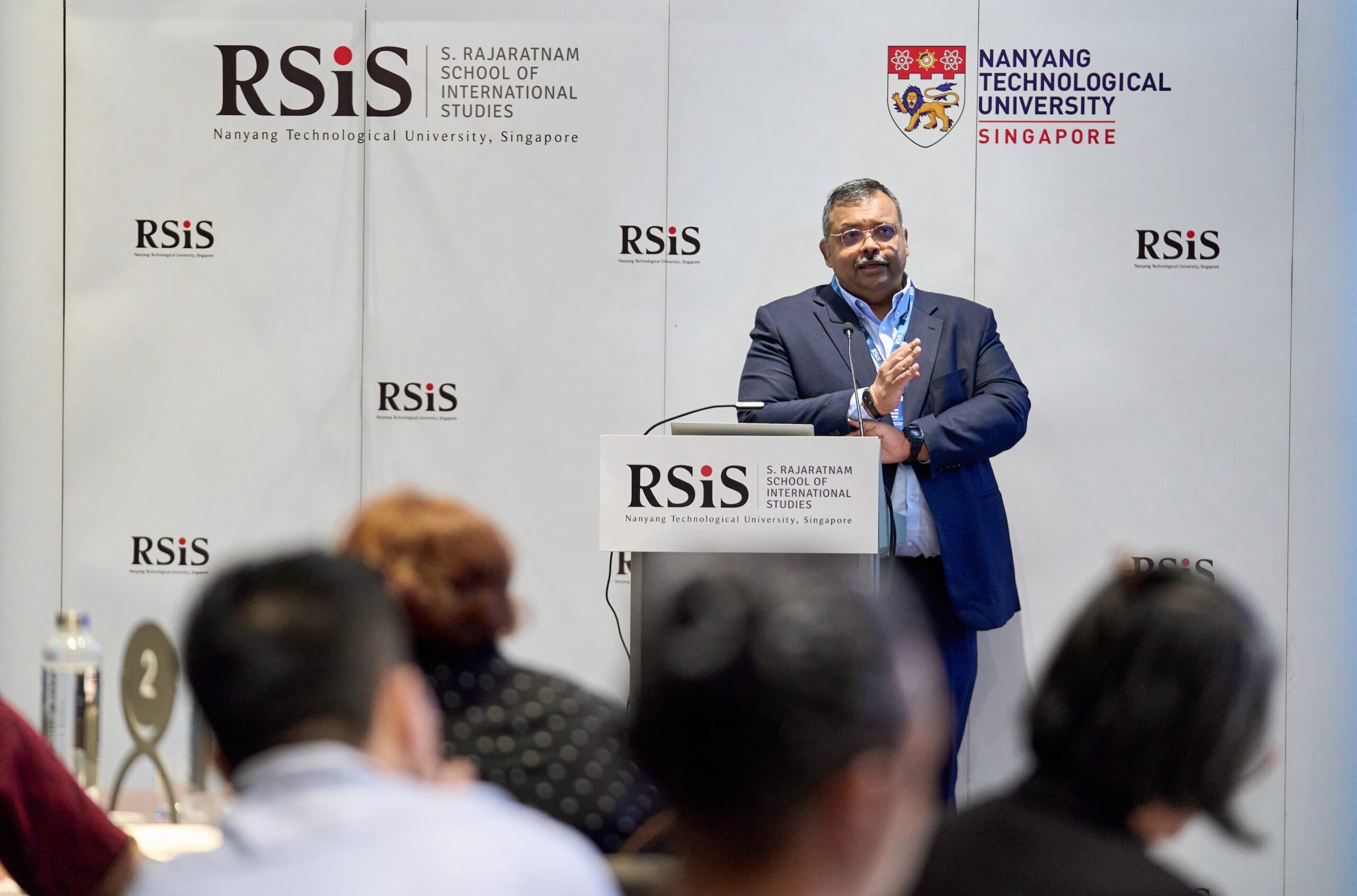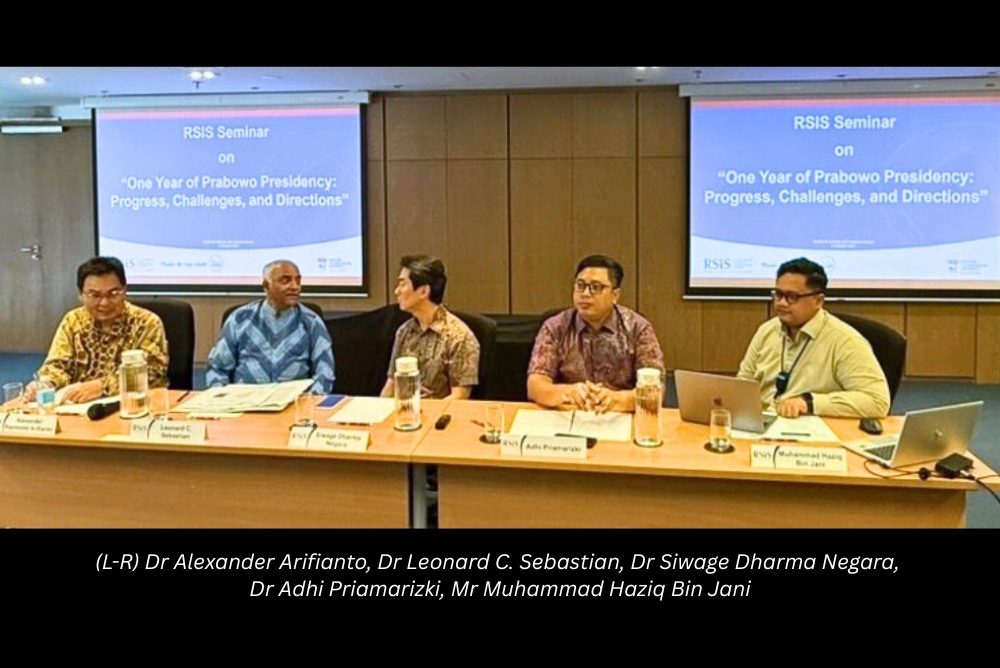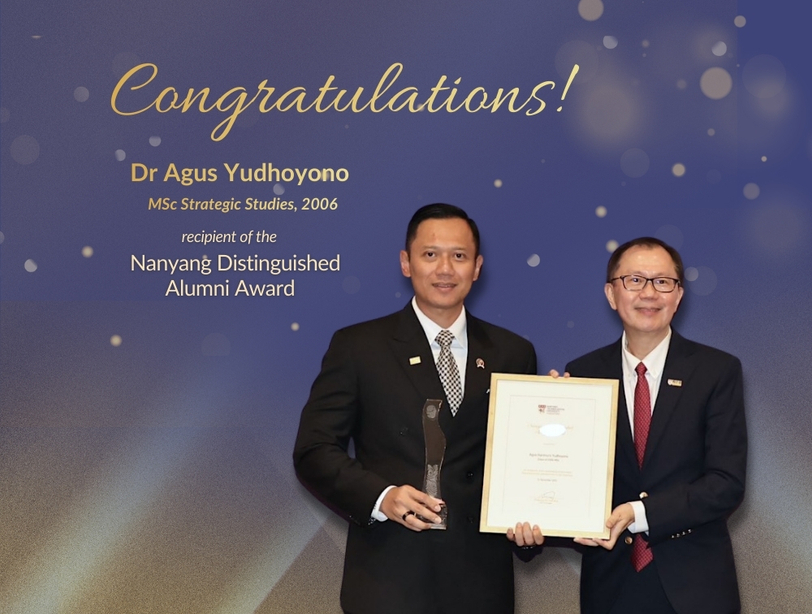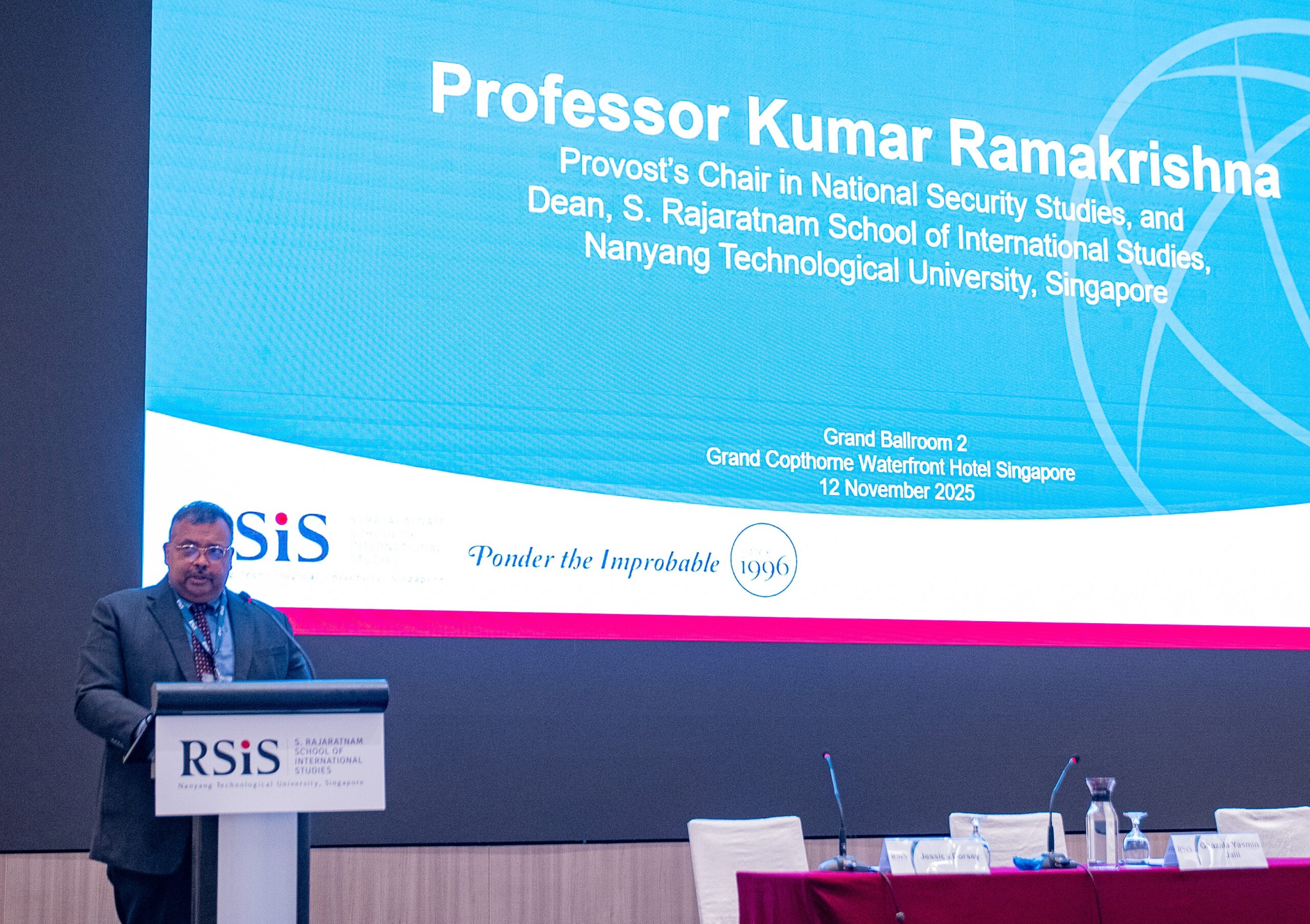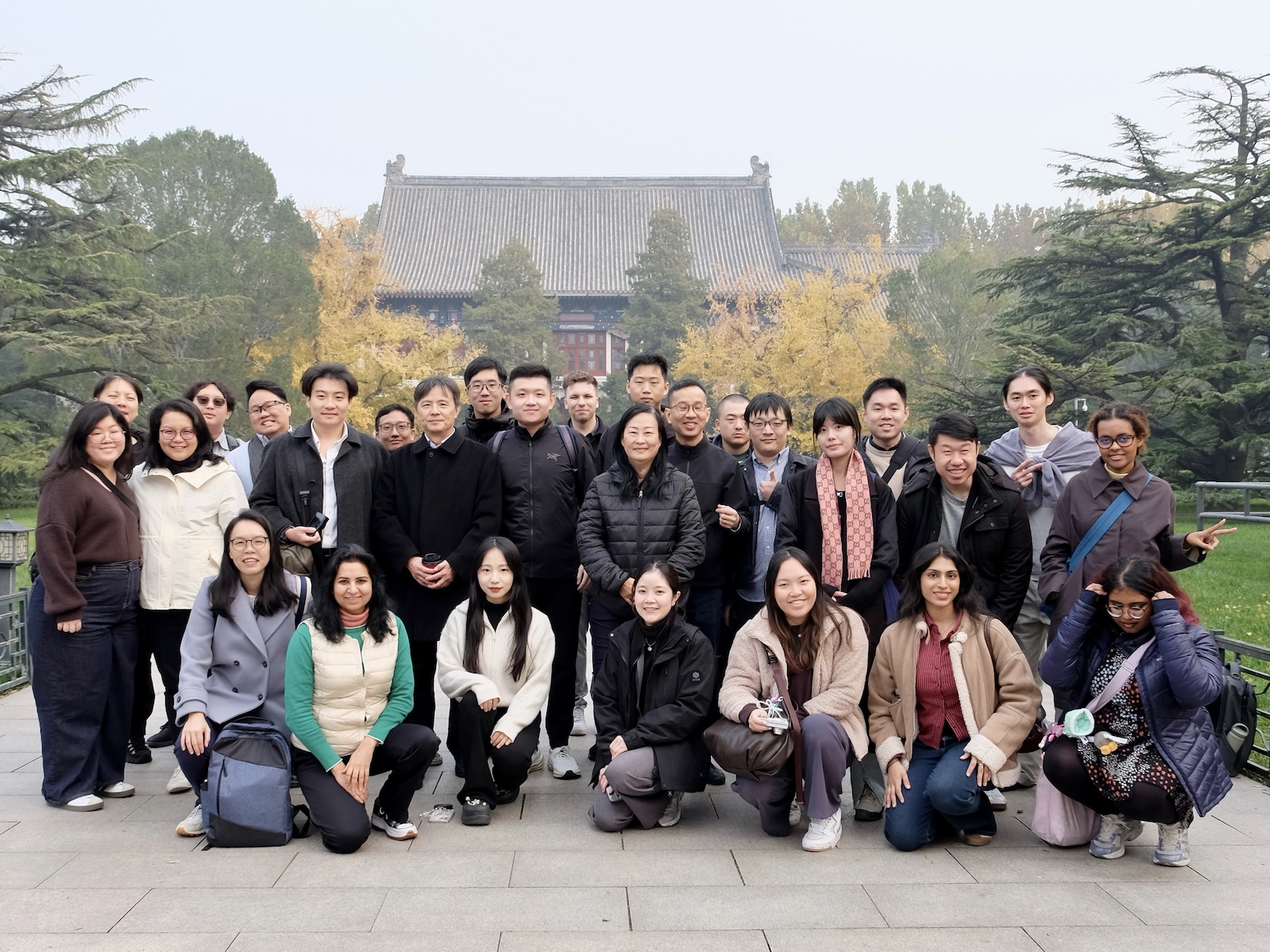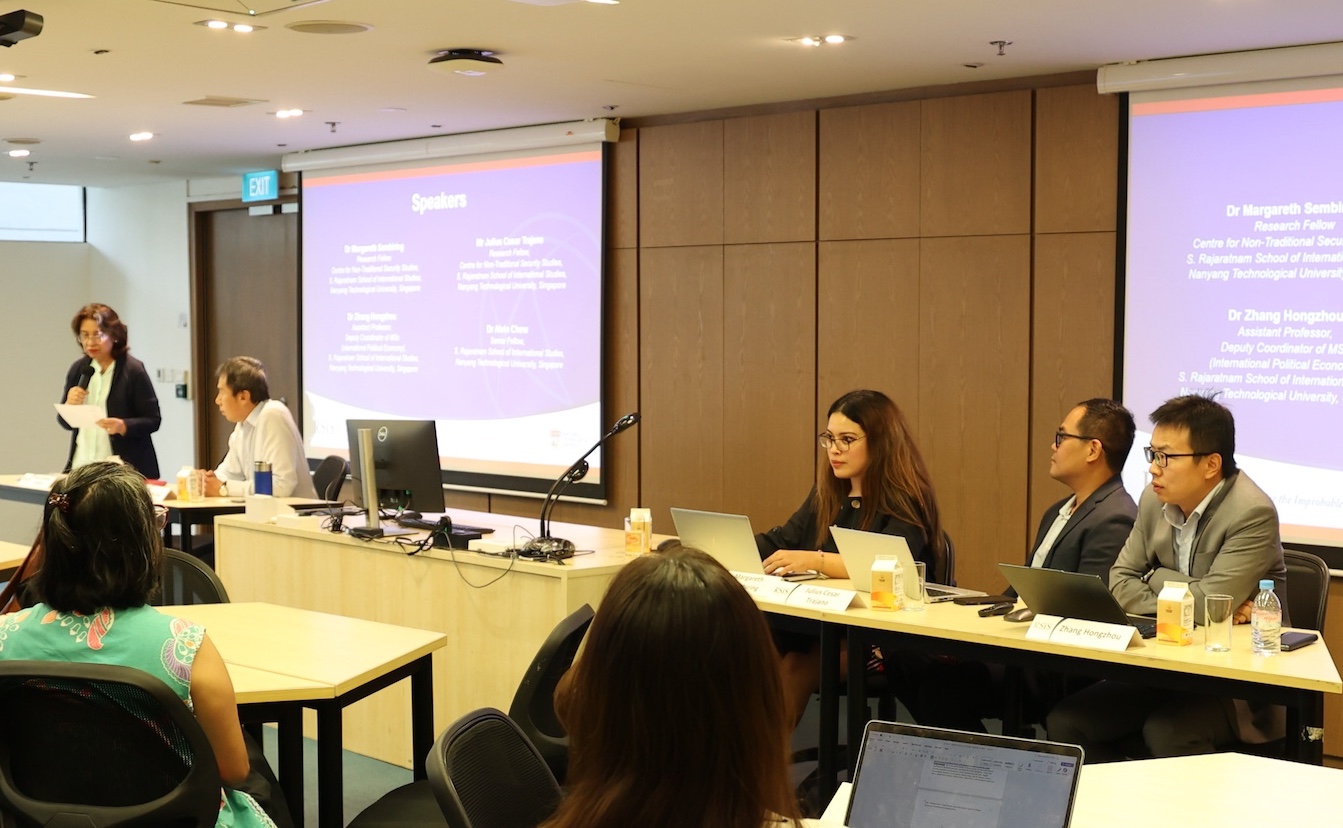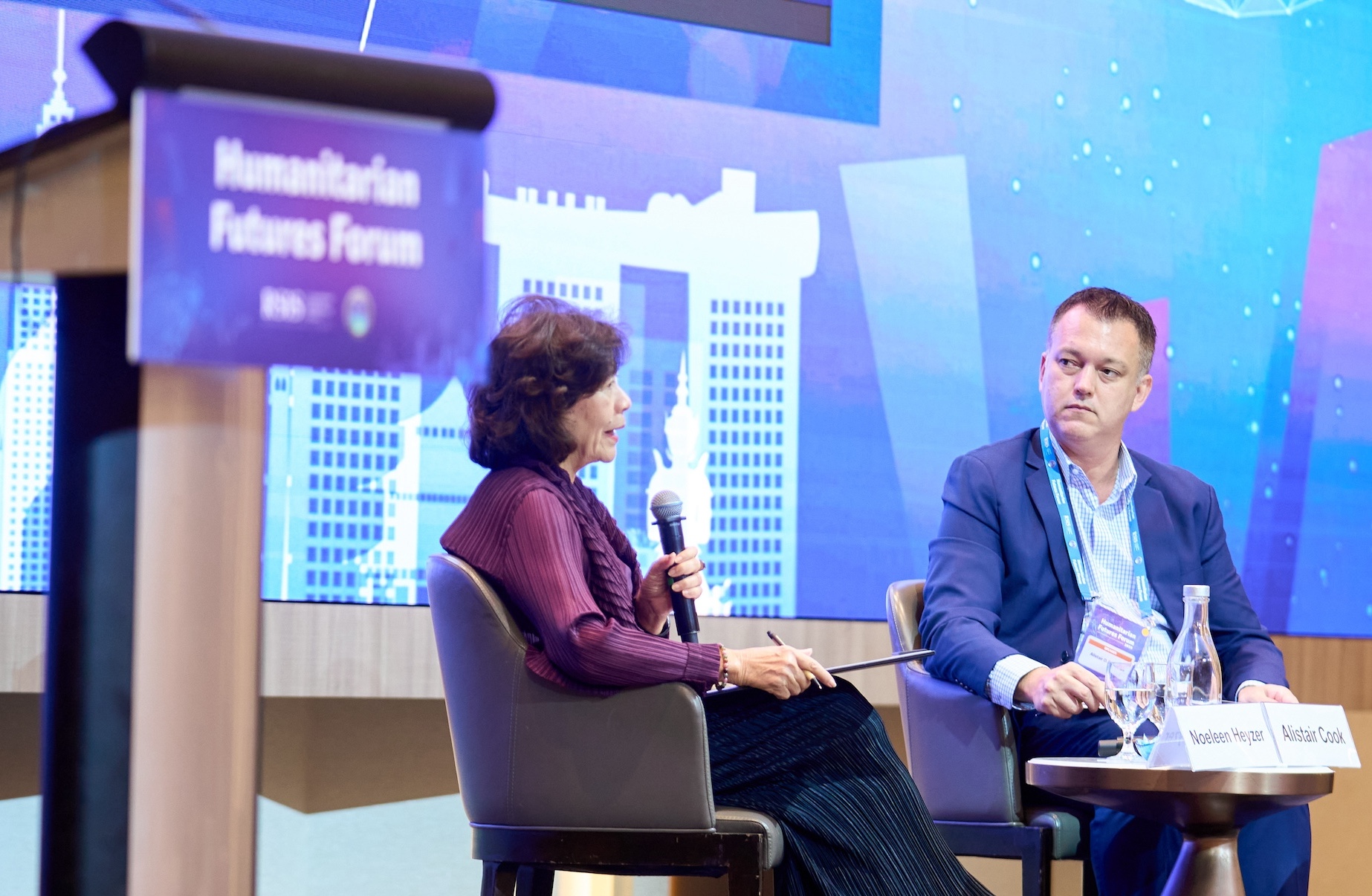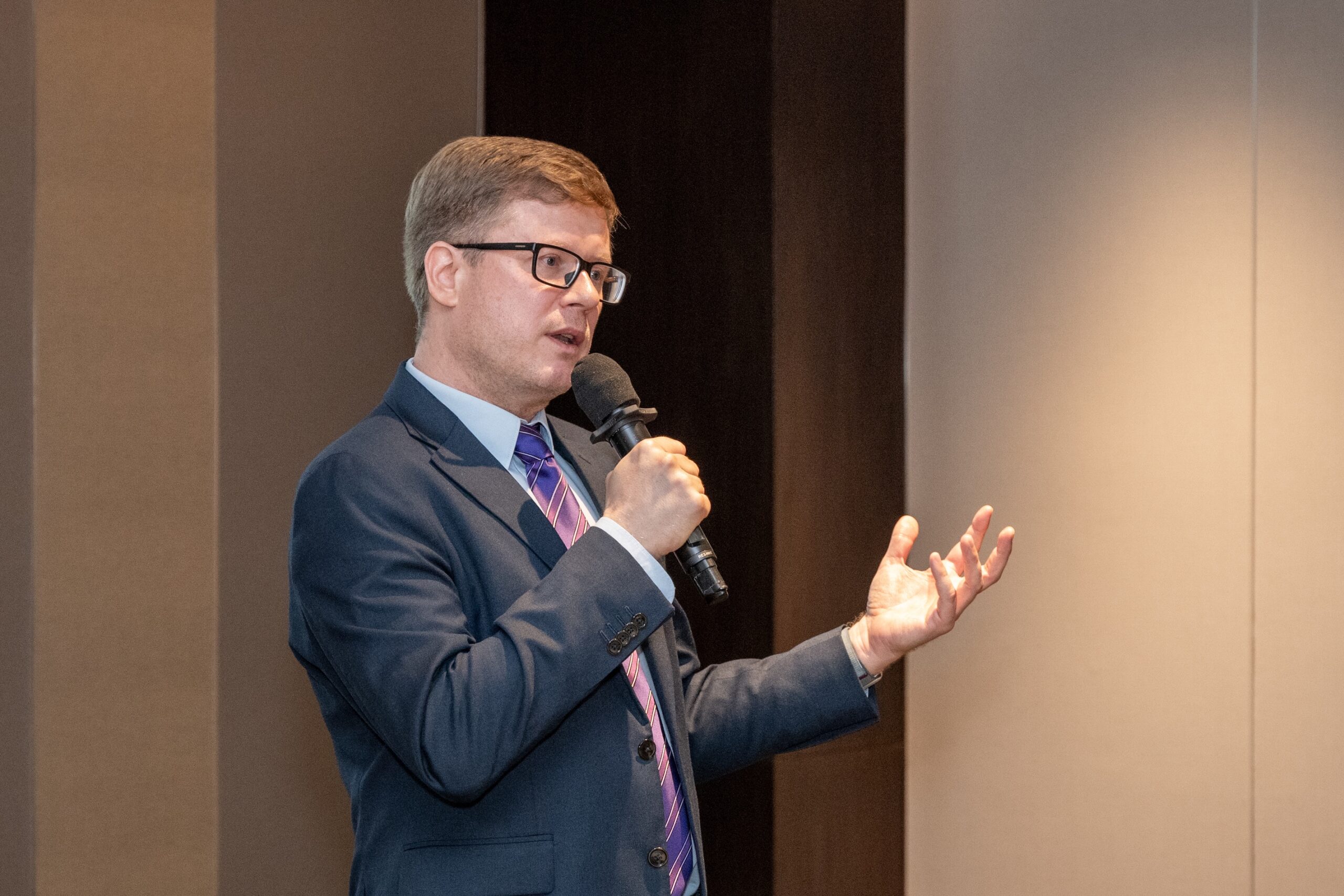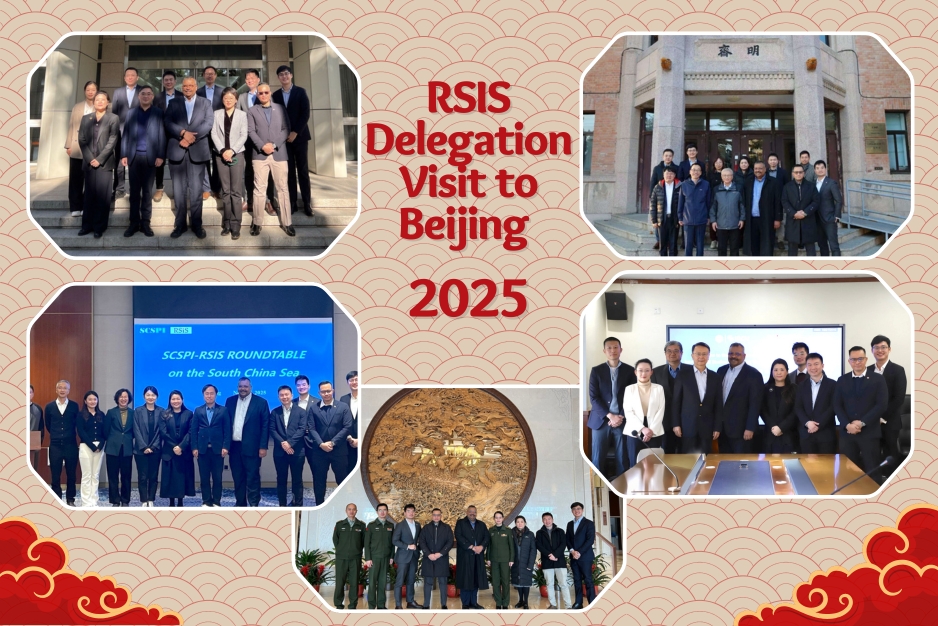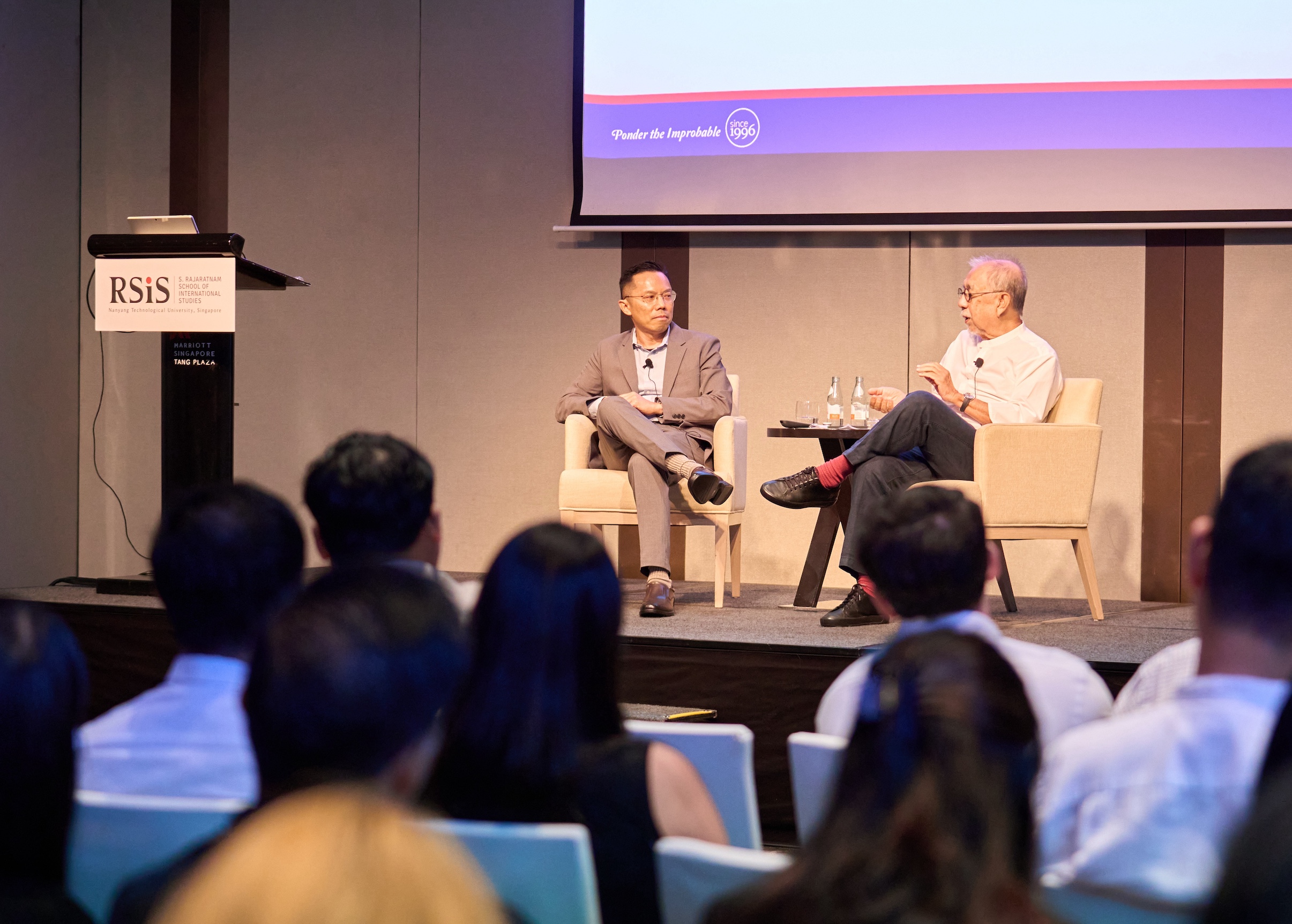
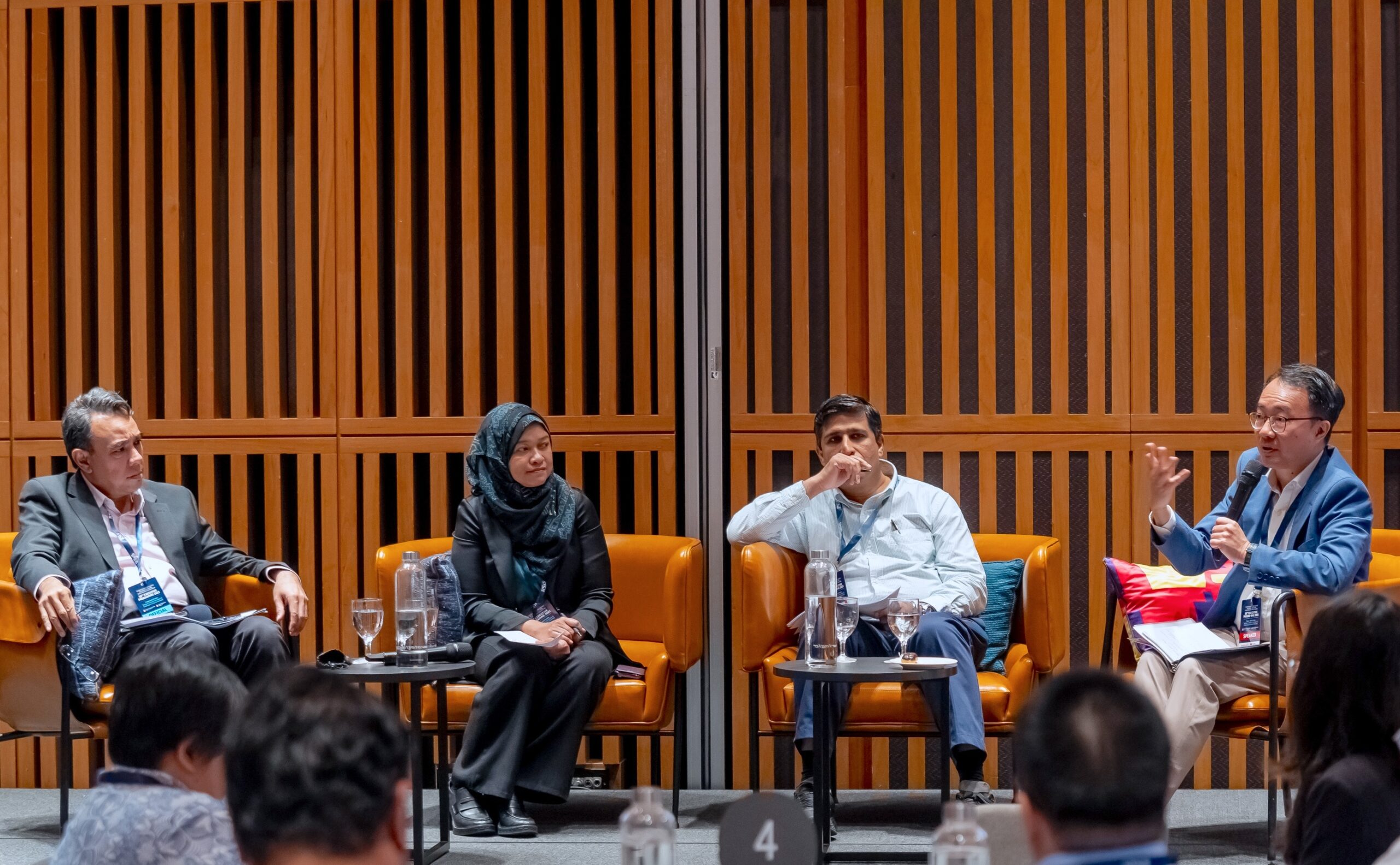
The Studies in Inter-Religious Relations in Plural Societies (SRP) Programme held its 10th Executive Programme (EP) on 20 & 21 August 2025. Titled “Fragmented Fronts: Religion, Secular Ideologies & Challenges to Social Harmony,” it addressed the challenges arising from polarisation and identity-based politics faced by plural societies, as well as the role technology plays in these issues. The event convened around fifty participants, including policymakers, educators, and community and religious leaders.
Professor Paul Hedges, Professor of Interreligious Studies and Associate Dean (Scholarly Ecosystems), commenced with an overview of the religious, non-religious, and secular ideologies that are known to create societal fractures, emphasising that familiarity with these ideas is crucial for engaging with them appropriately through debate or dialogue. Dr Leong Chan-Hoong, Senior Fellow and Head of Social Cohesion Research Programme at RSIS, explored the psychological and tribal lenses behind the social construction of the ‘Other’, unpacking narratives that fuel exclusion, stereotyping, and demonisation of minority groups.
Dr Norshahril Saat, Senior Fellow at ISEAS-Yusof Ishak Institute, opened the discussion by examining how national identity intertwines with faith, race, and culture in ASEAN societies, often leaving minorities at the margins. Building on this theme of exclusion, Dr Rosleenda Mohamed Ali, Senior Lecturer at the School of Humanities & Behavioural Sciences at the Singapore University of Social Sciences (SUSS); highlighted the vulnerabilities of youth in digital spaces, showing how online gaming platforms can mask personal struggles while normalising violence, thus creating fertile ground for extremist narratives.
The conversation then shifted to the societal costs of prejudice. Dr Mathew Mathews, Head of Social Lab & Principal Research Fellow at the Institute of Policy Studies (IPS), drew on surveys and statistics to demonstrate how bias deepens polarisation, reinforces stereotypes, and erodes trust in institutions. Complementing this, Mr Benjamin Ang, Senior Fellow and Head of the Centre of Excellence for National Security (CENS) at RSIS, unpacked the digital infrastructure that enables extremism to spread, mapping both the threat actors and the tactics they employ online.
These presentations culminated in a panel moderated by Dr Mohamed Bin Ali, Senior Fellow at the SRP Programme, RSIS; where speakers engaged one another on the common challenges they had raised. The dialogue revolved around how societies might resist extremist narratives, the responsibilities of online platforms in regulation, and the broader state of prejudice and social cohesion in Singapore.
Day Two continued this momentum. Mr Sarabjeet Singh, Subject Head for Citizenship Education at St. Joseph’s Institution (SJI), shared how schools can nurture critical thinking and pluralistic values in young people, while Ms Farah Mahamood Aljunied, Senior Director of Higher Education & Research at the Islamic Religious Council of Singapore (MUIS), offered insights into how madrasahs similarly instil resilience and openness in an age of hyper-diversity.
The programme then turned to practice. In a panel moderated by Mr Luca Farrow, Associate Research Fellow at the SRP Programme, RSIS; community leaders and practitioners – including Dr Mohamed Bin Ali, Ms Aathira Unnithan, Treasurer at hash.peace and Assistant Secretary General at the Sree Narayana Mission (Singapore), Mr Basil Kannangara, Founder of Being Bridges, and Mr Dan Thio, Co-Founder of Humanist Society (Singapore) – shared concrete strategies for countering hate with alternative narratives, drawing from their experiences across different sectors of Singapore society.
The programme’s final activity was an interactive breakout session where participants were divided into groups to tackle case studies aimed at identifying the roots of polarisation and developing strategies for social cohesion.
Mr Mohamed Nassir, Head of SRP Programme, concluded the EP 2025 with a presentation on “Reimagining the Social Compact – A Shared Vision for the Future”, where he reflected on the core discussions of EP 2025 and referenced a recent IPS working paper that presented compelling insights regarding religious identity and practice among Singaporeans. He urged a shift from rigid identity labels to shared stories, from fragile tolerance to robust pluralism, where society embraces differences as civic assets rather than hazards. Amidst global pressures, such as the conflict in Gaza and rising nationalism, he provided actionable advice for policymakers, educators, faith leaders, and civil society on strengthening Singapore’s social compact. He urged participants to contribute to and actively shape this compact, echoing President Tharman’s metaphor of a “single fabric of batik crafted by different hands to create a larger motif of many colours.”




